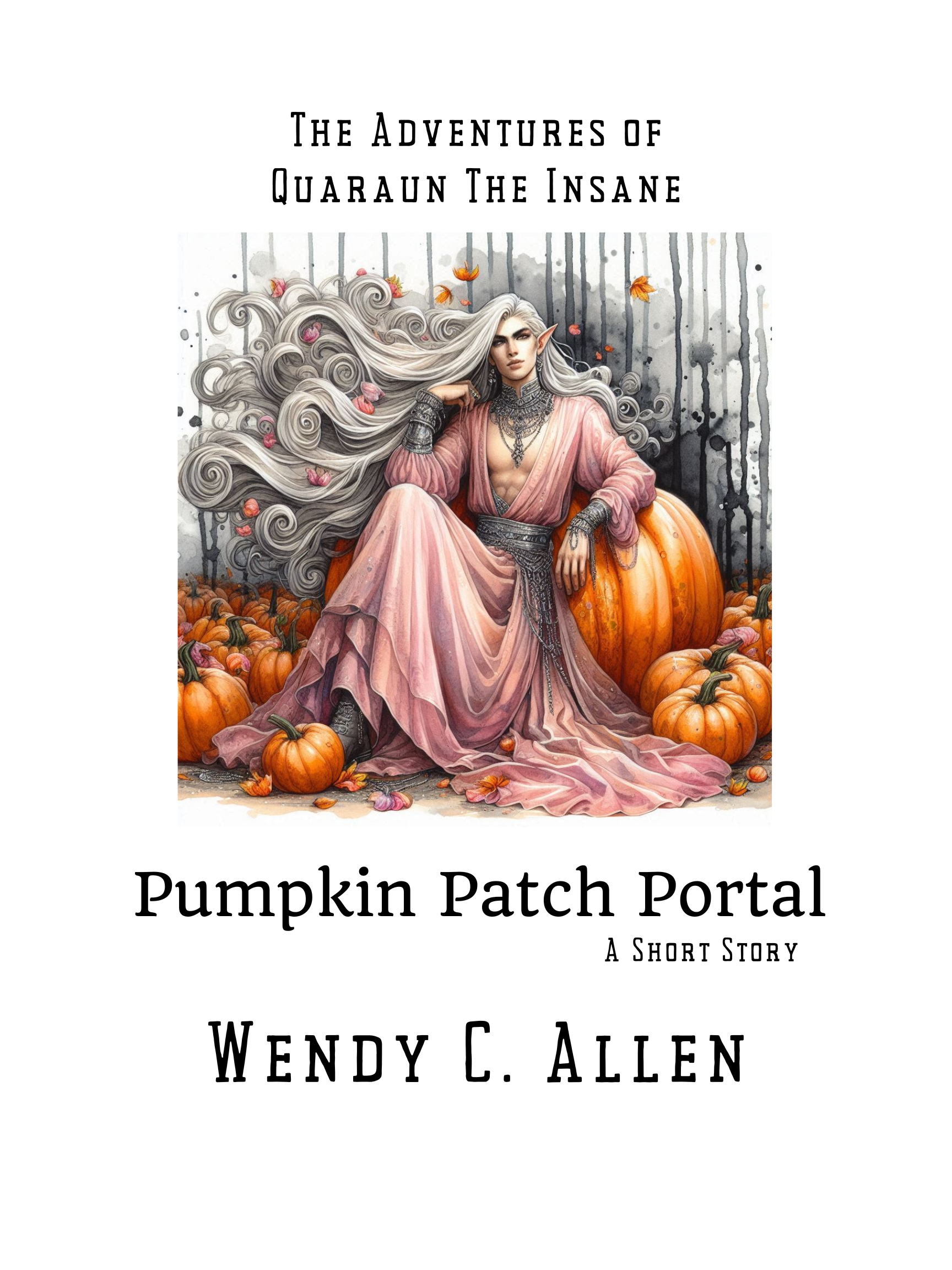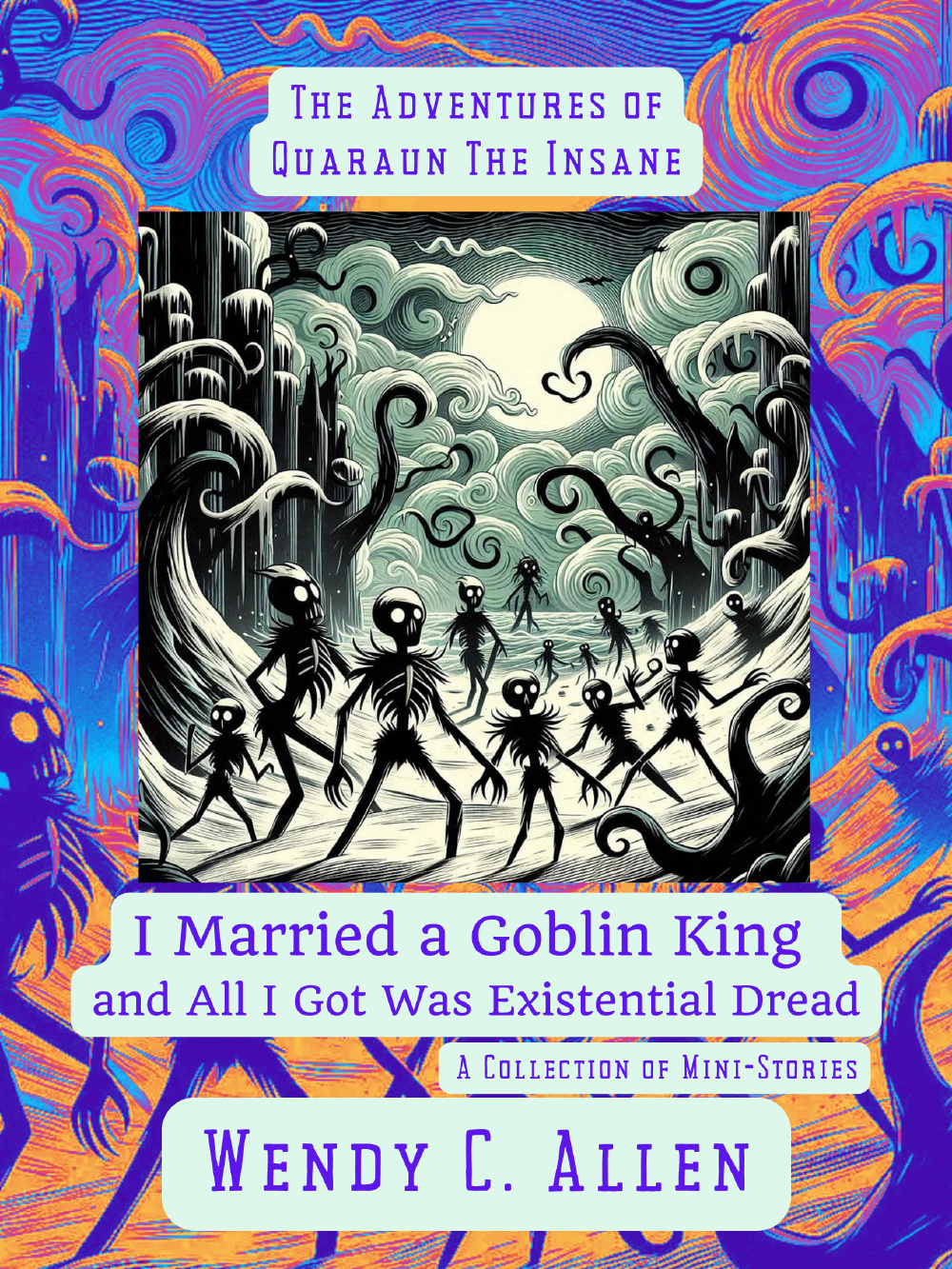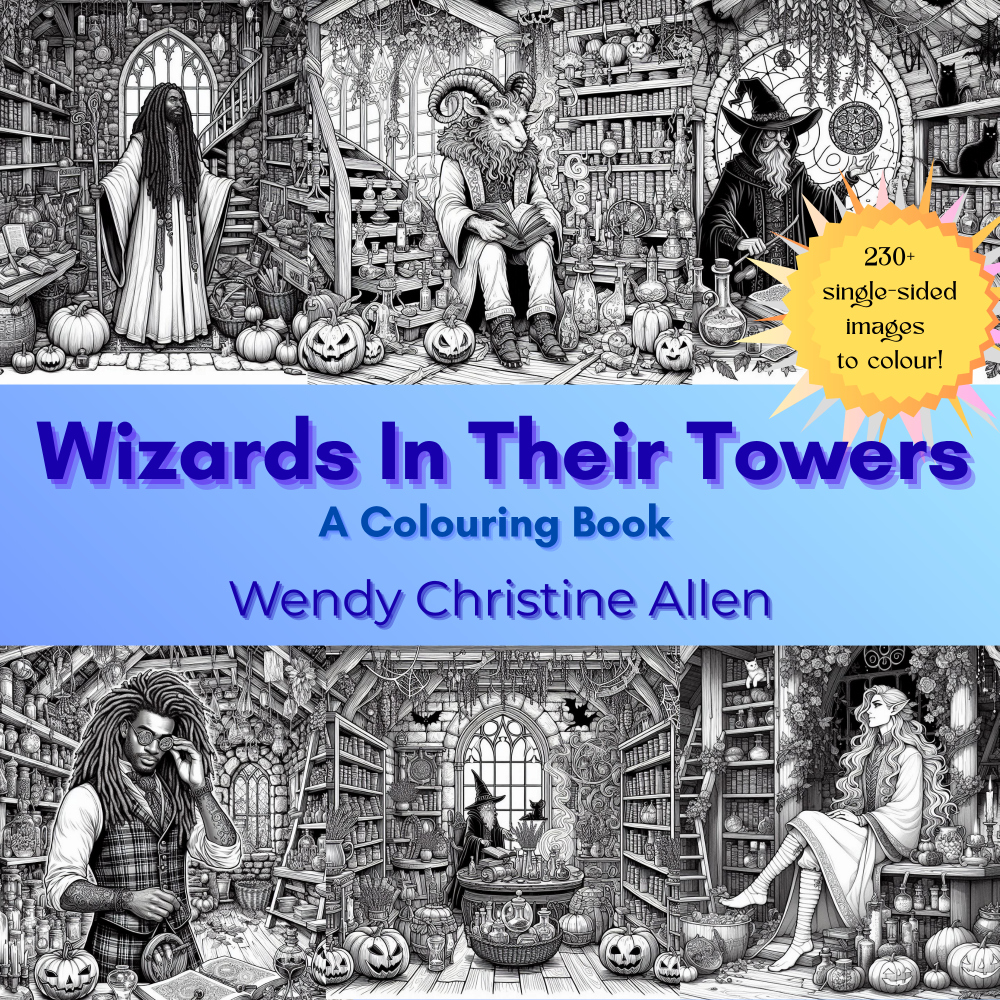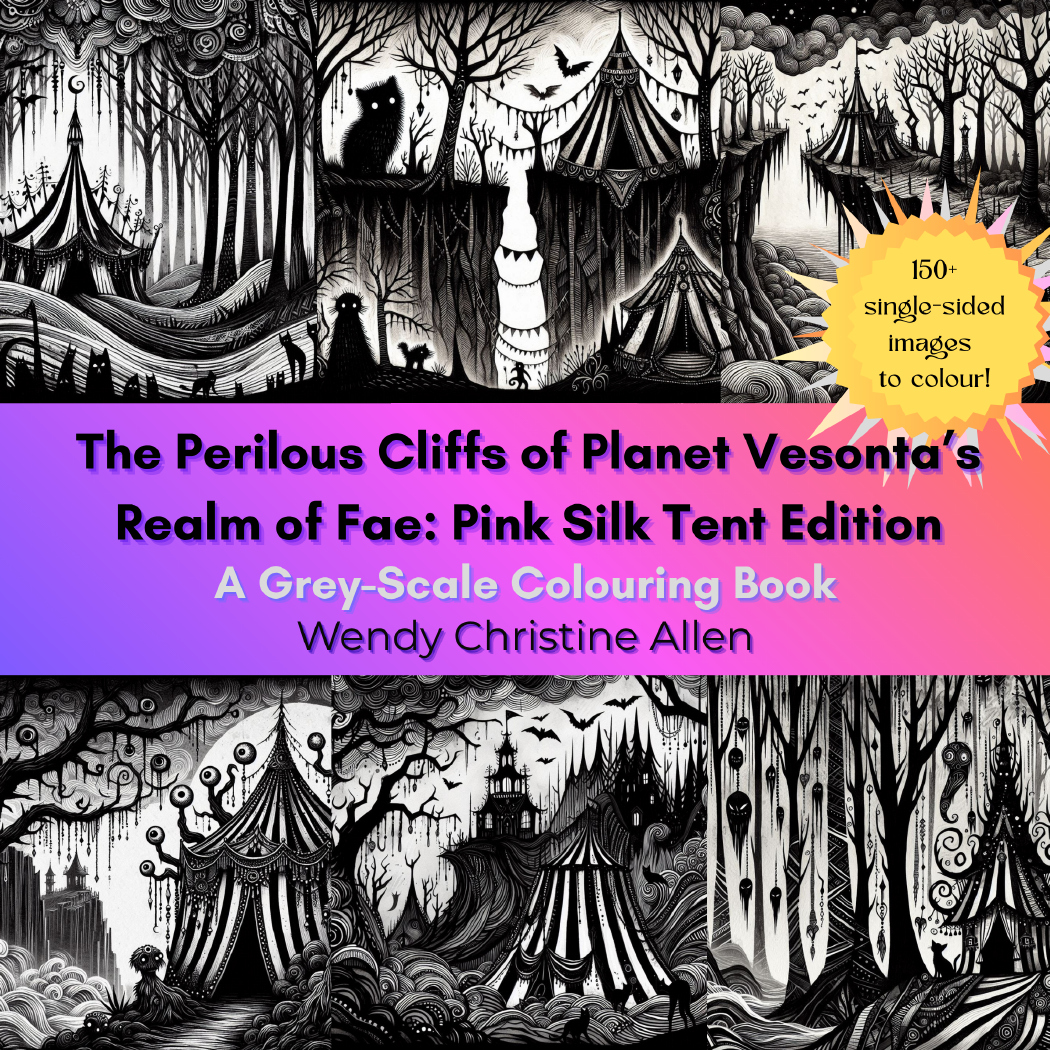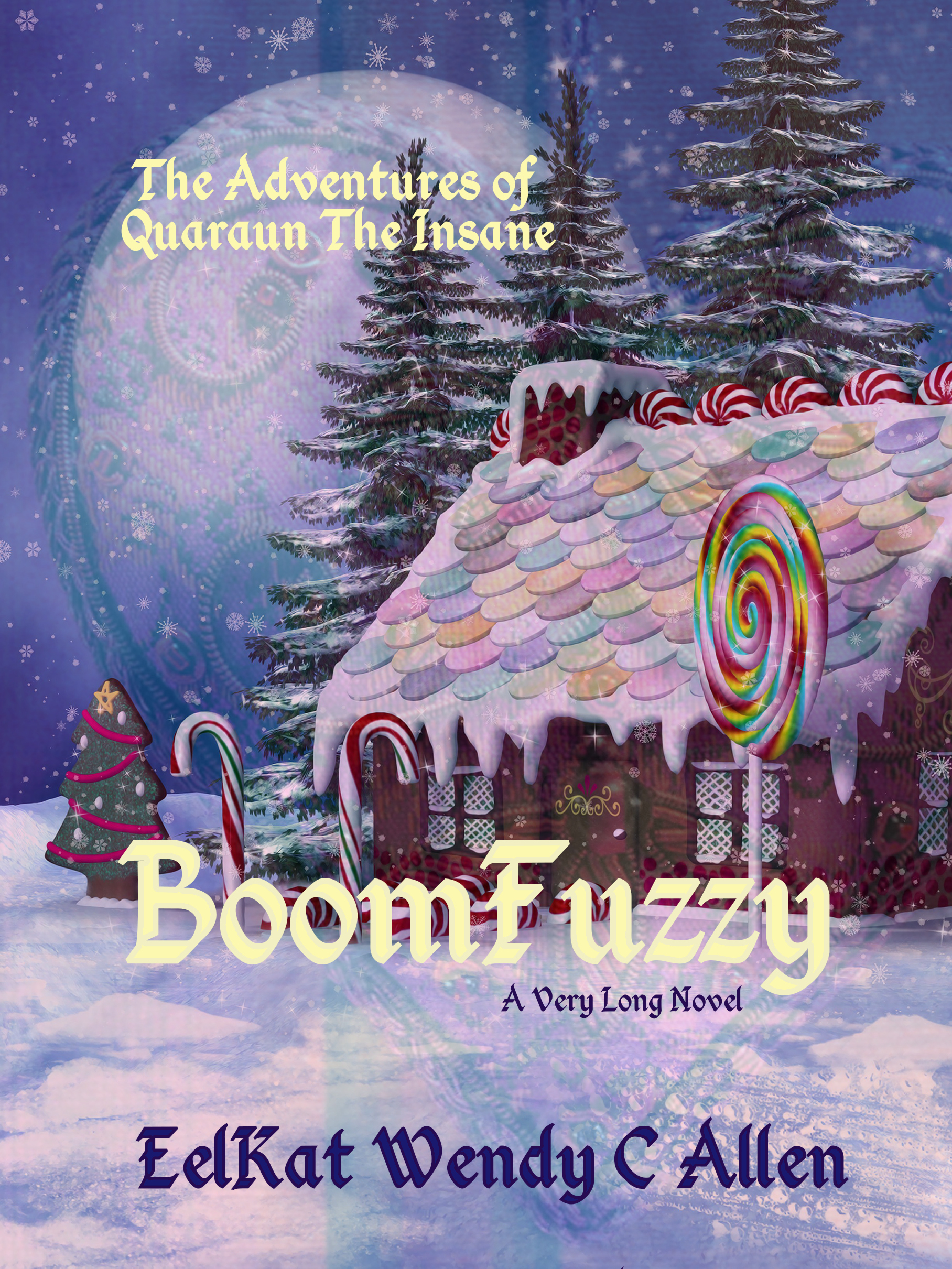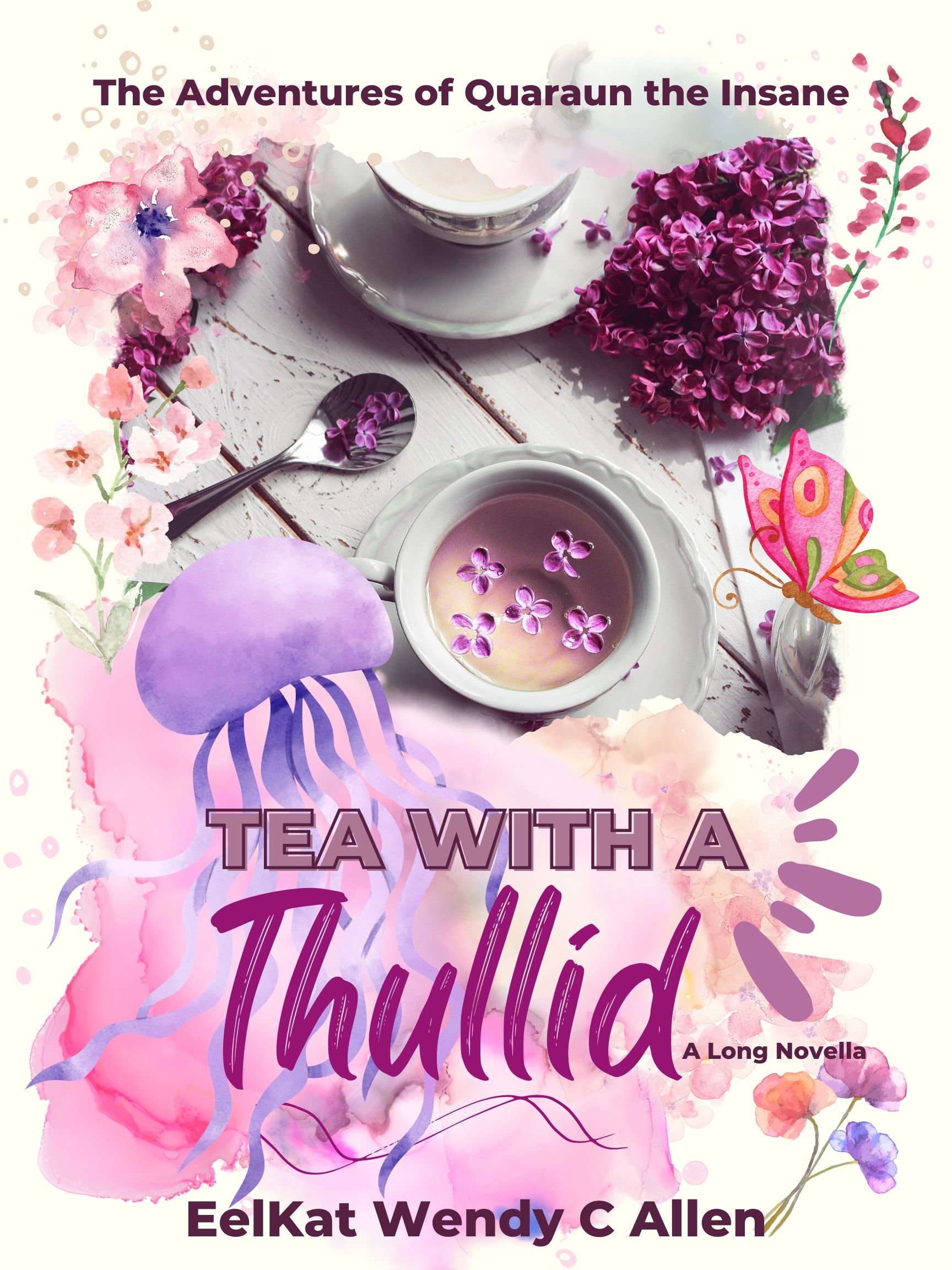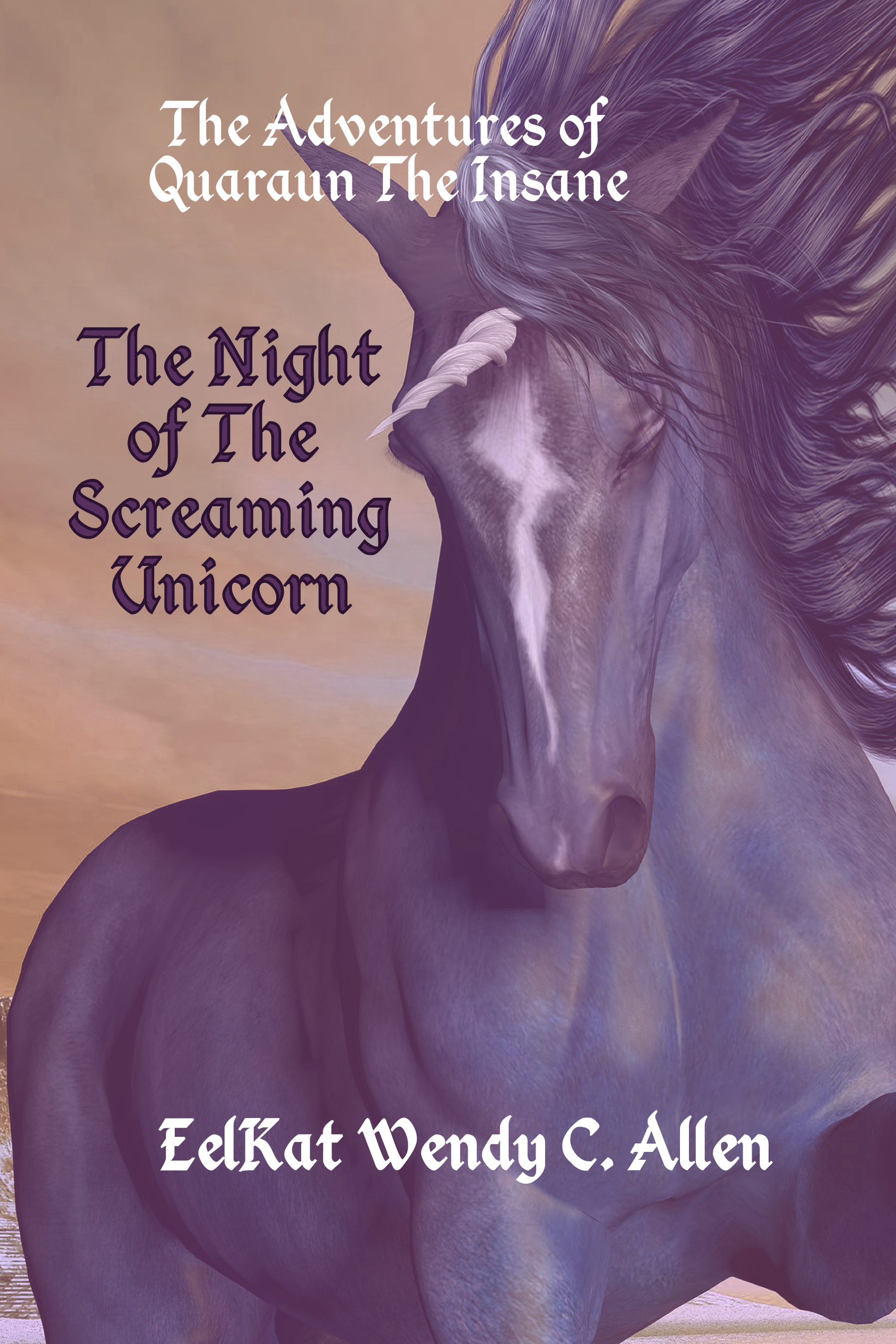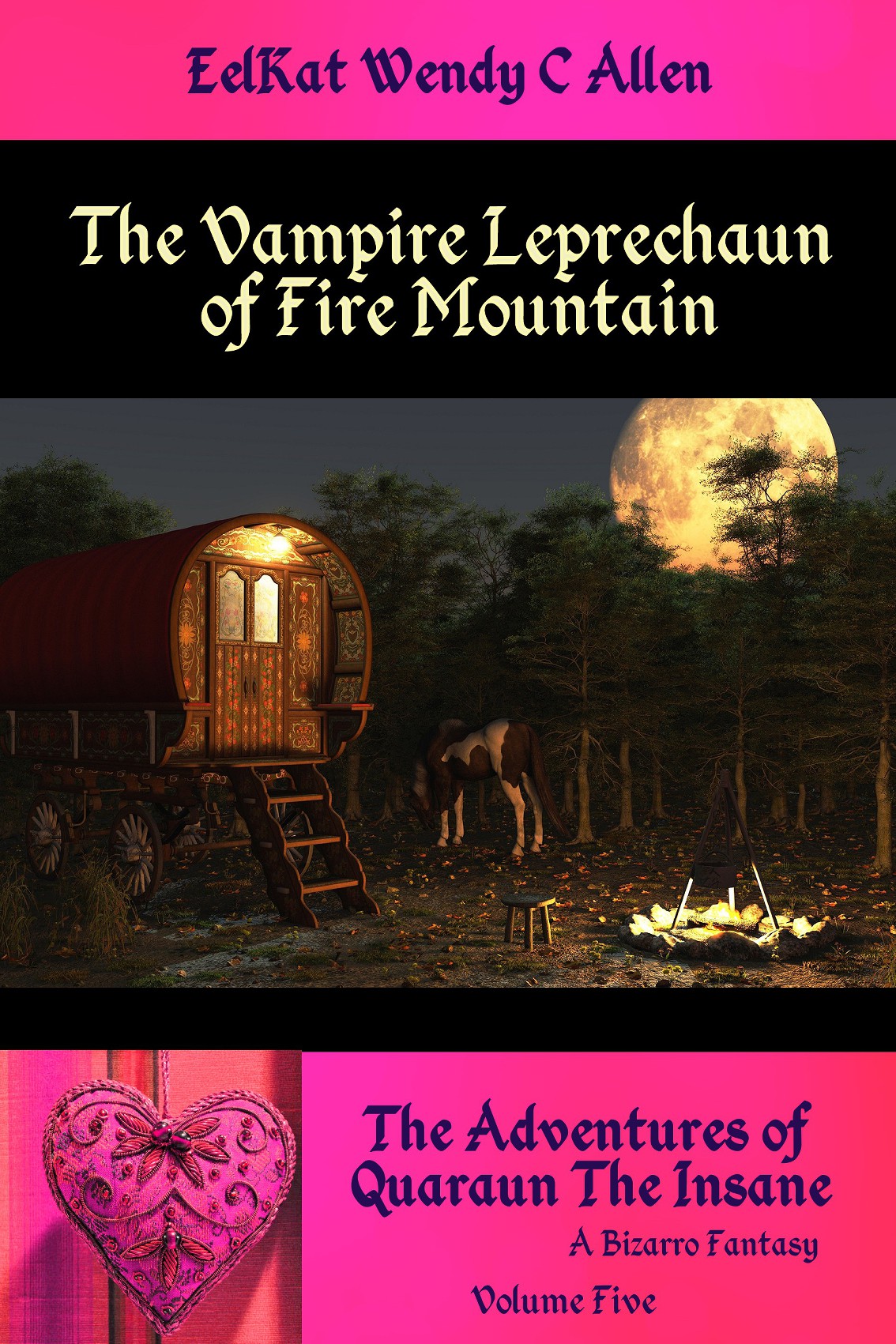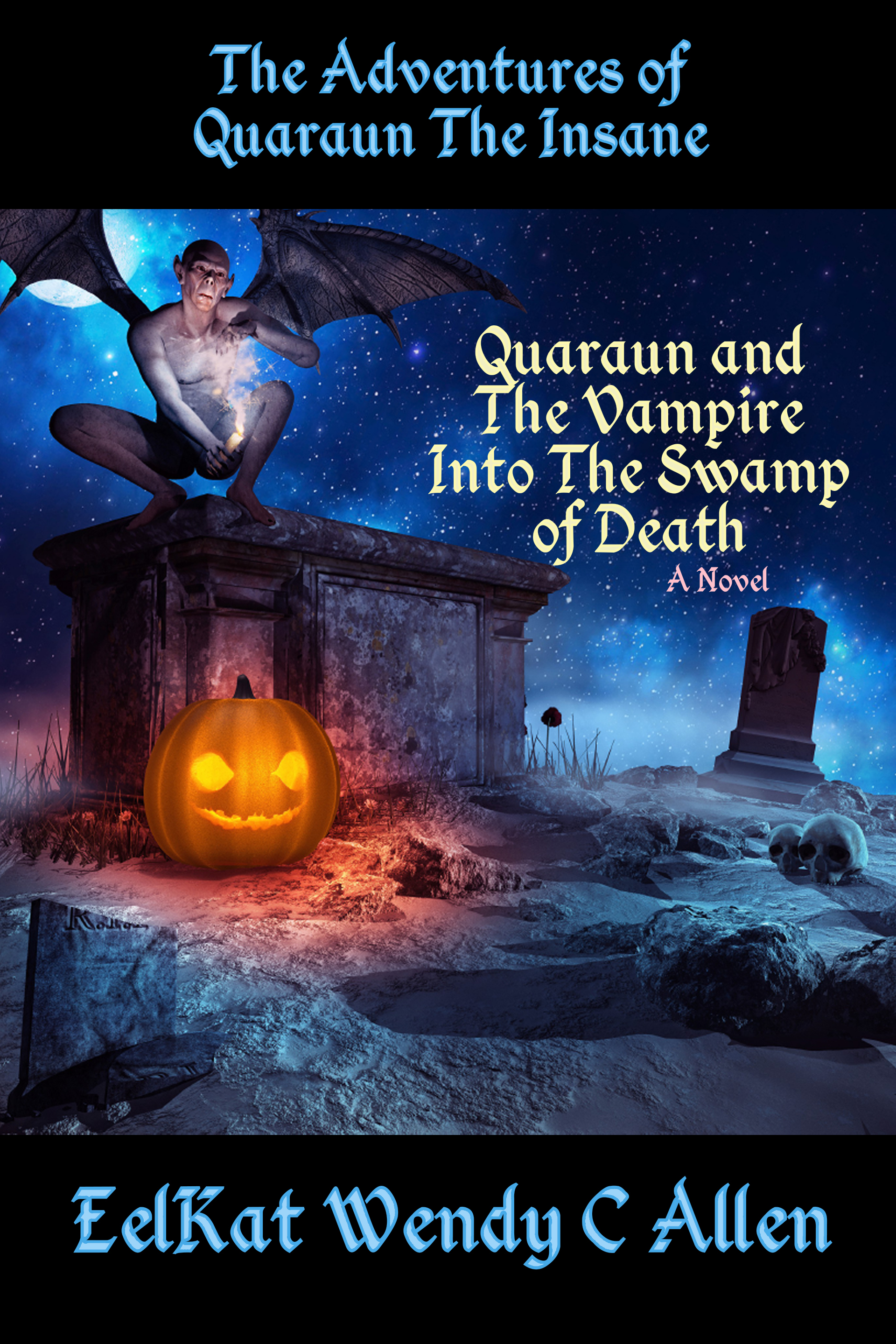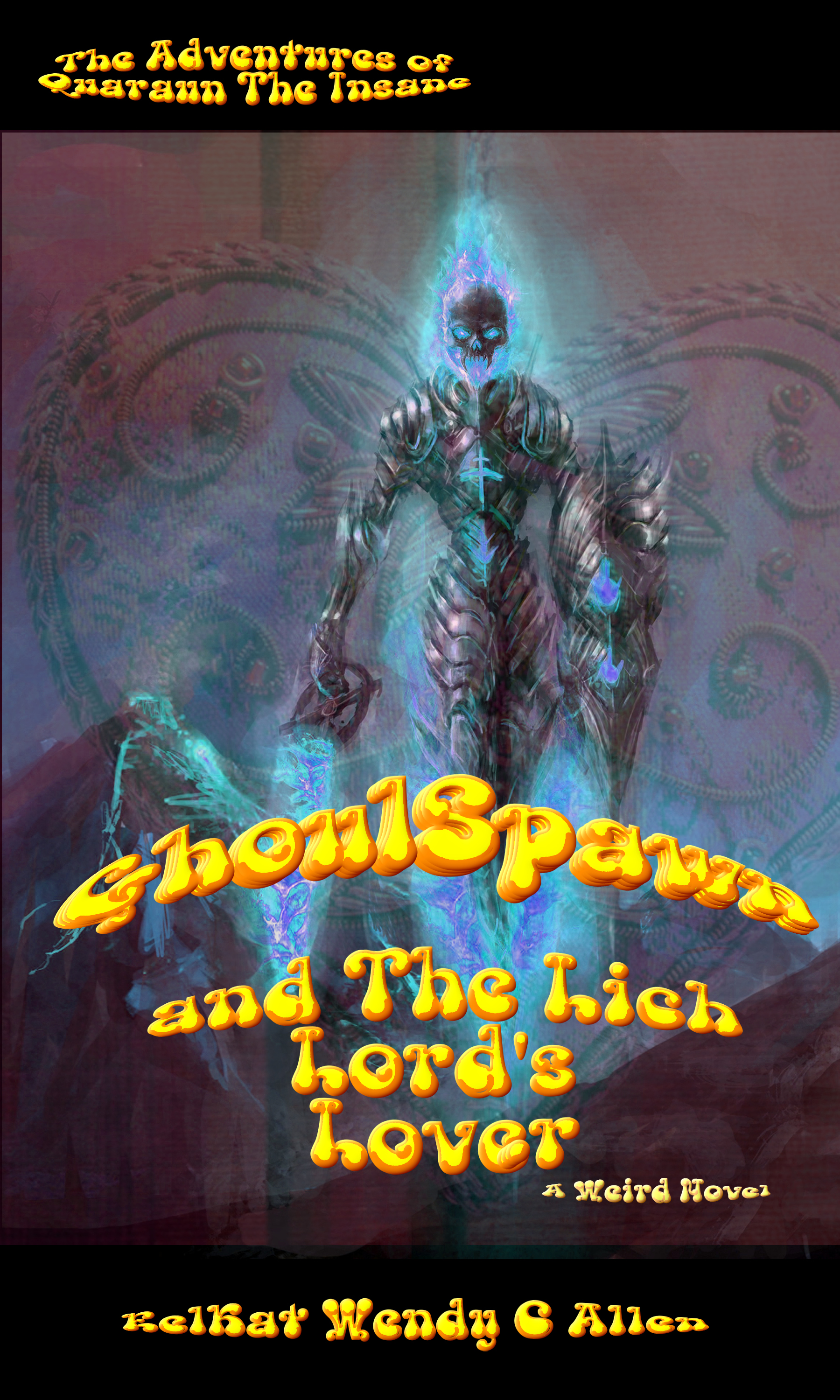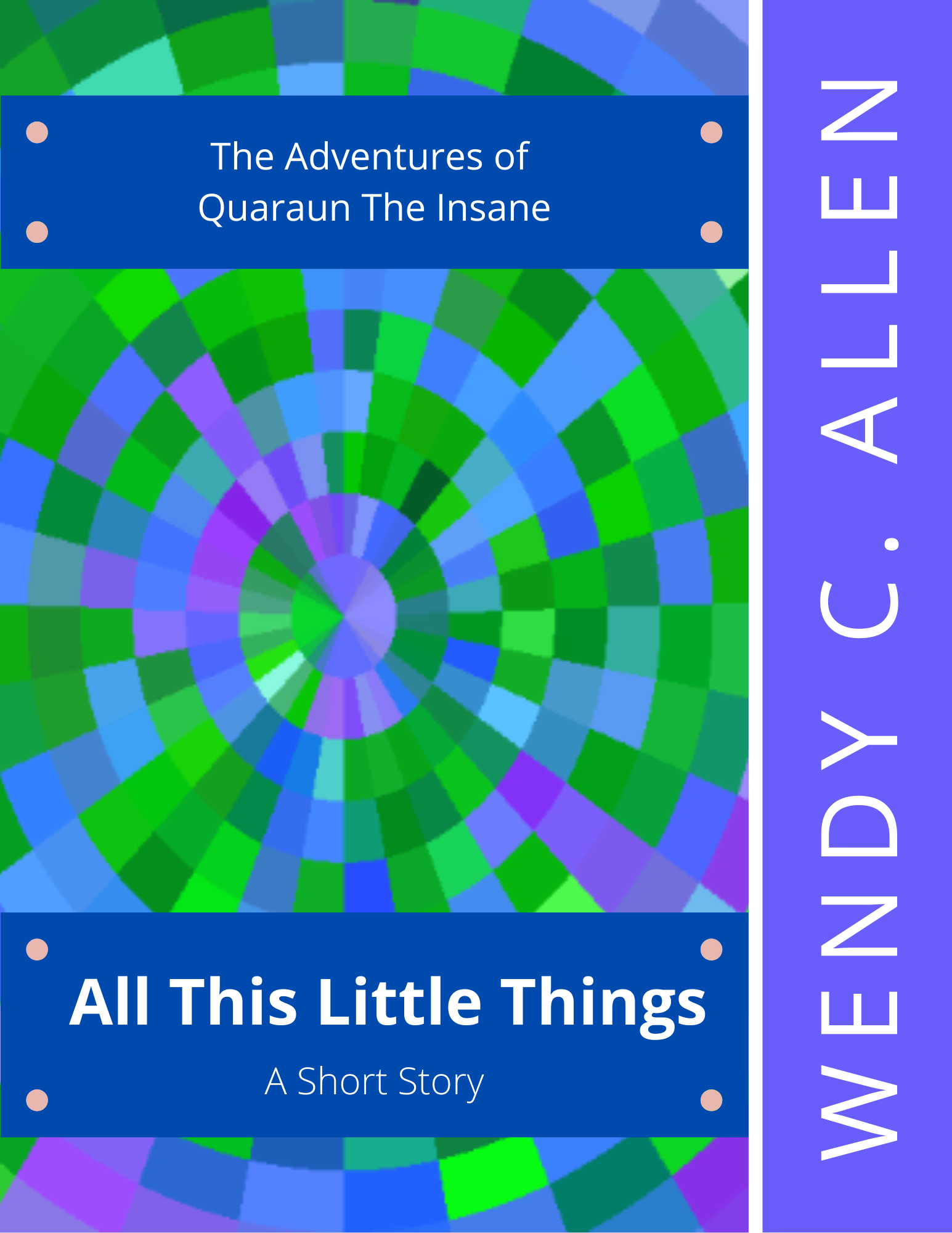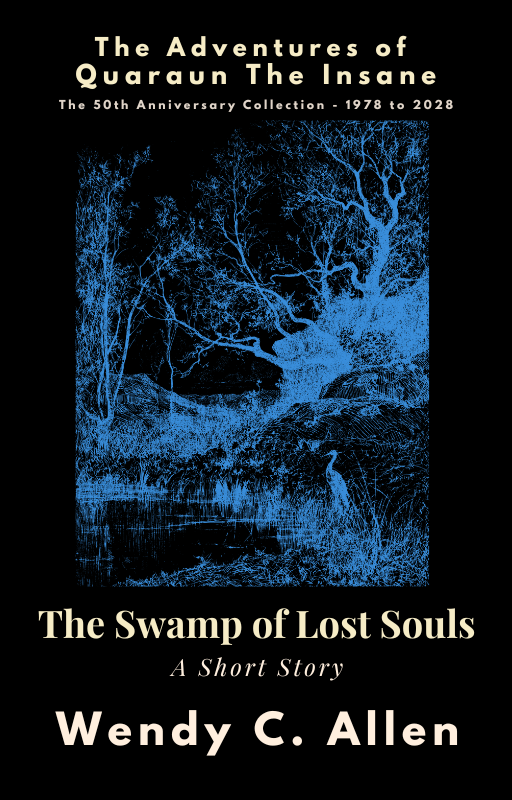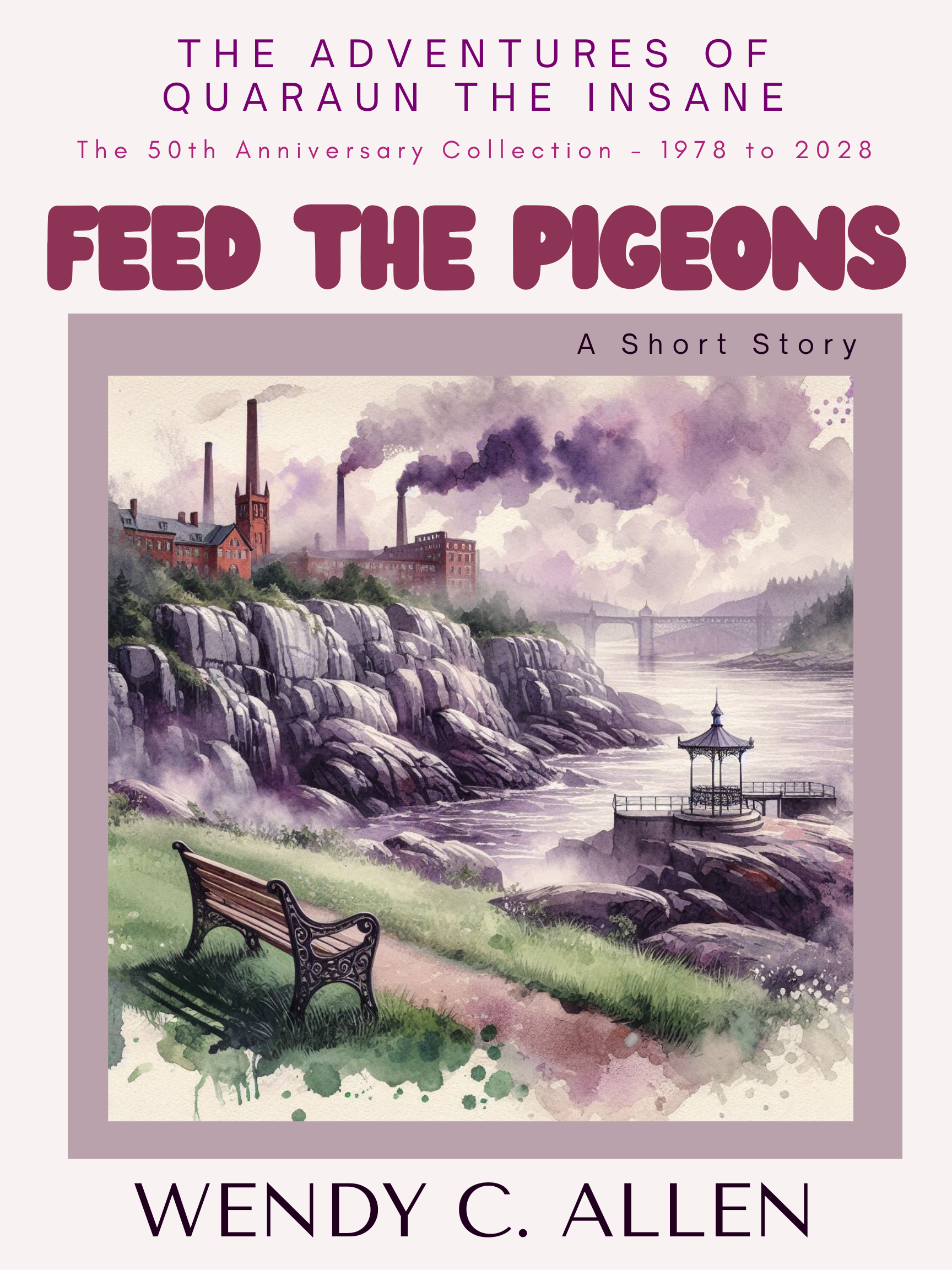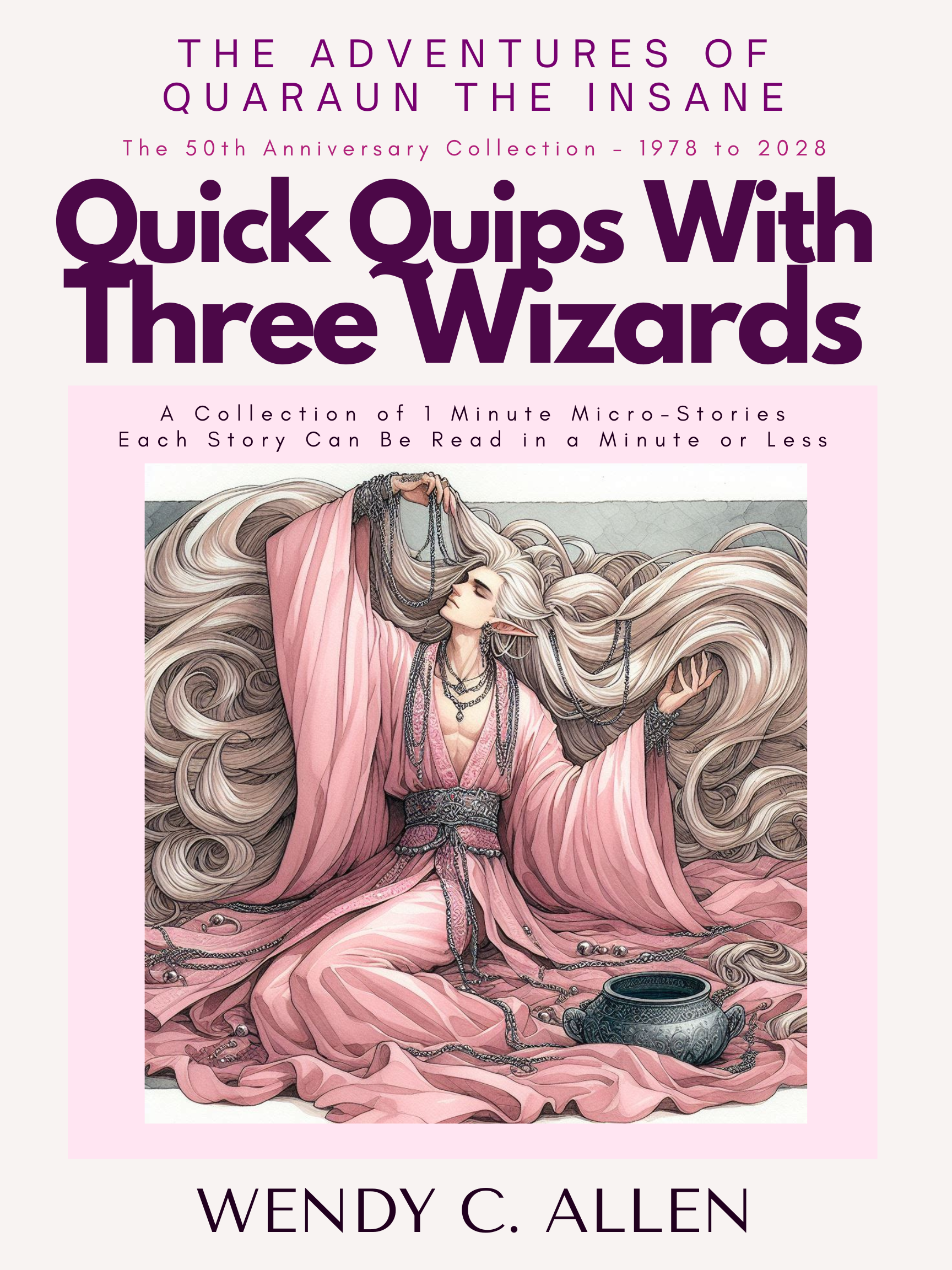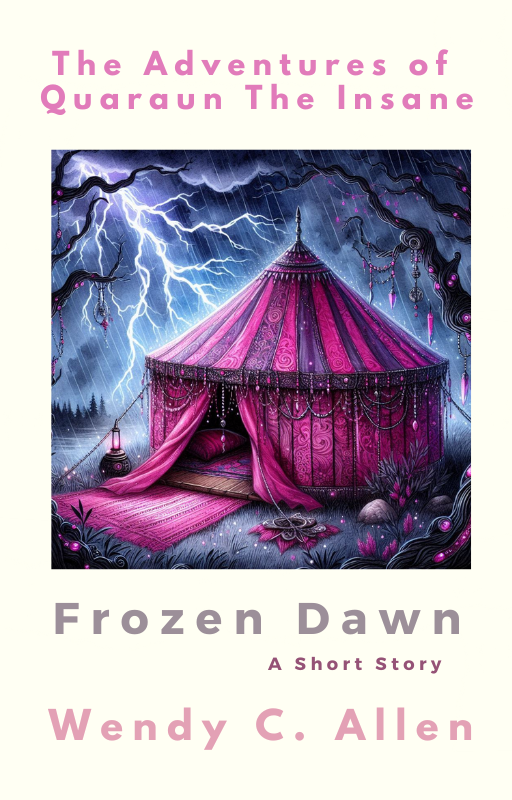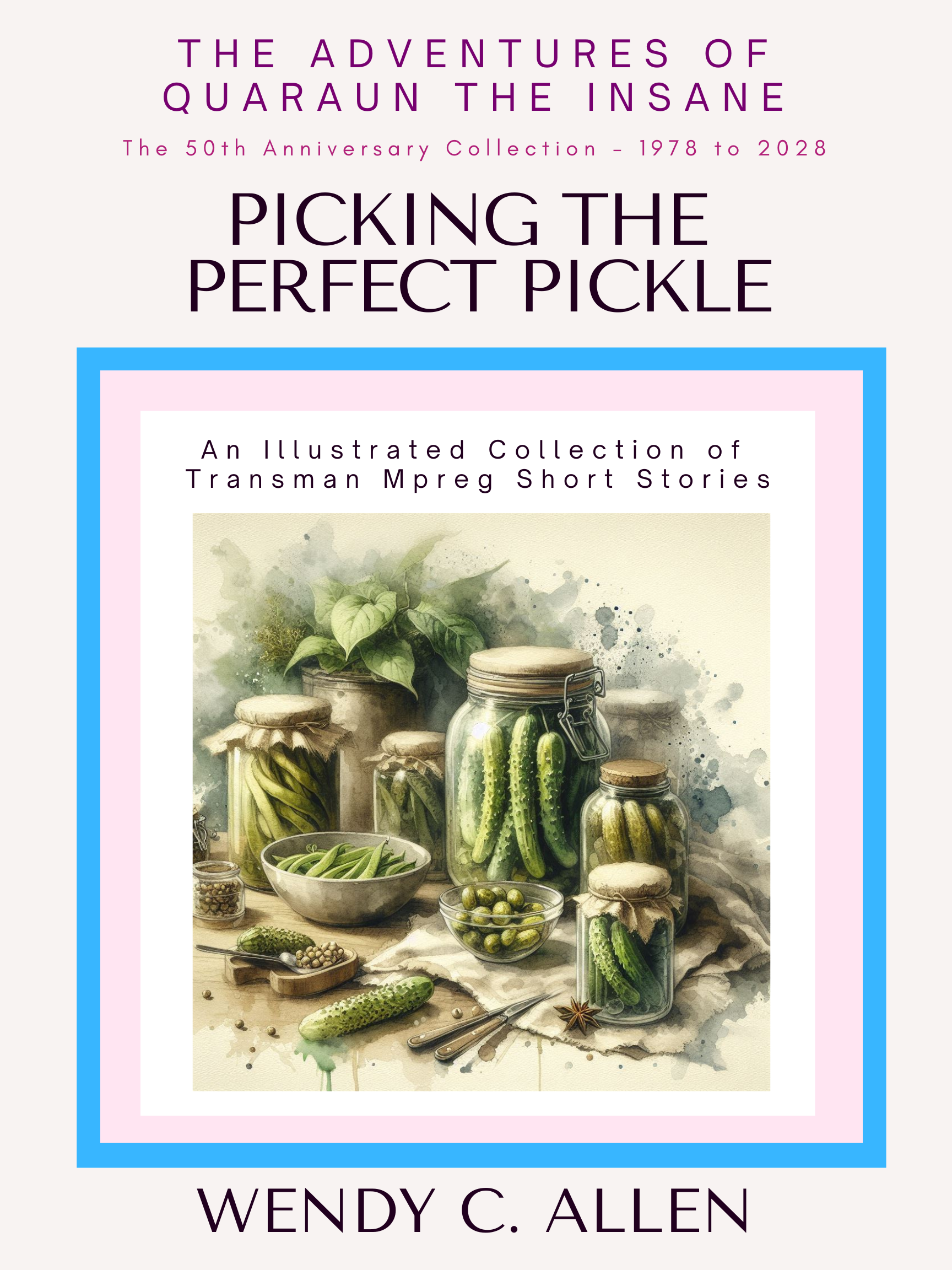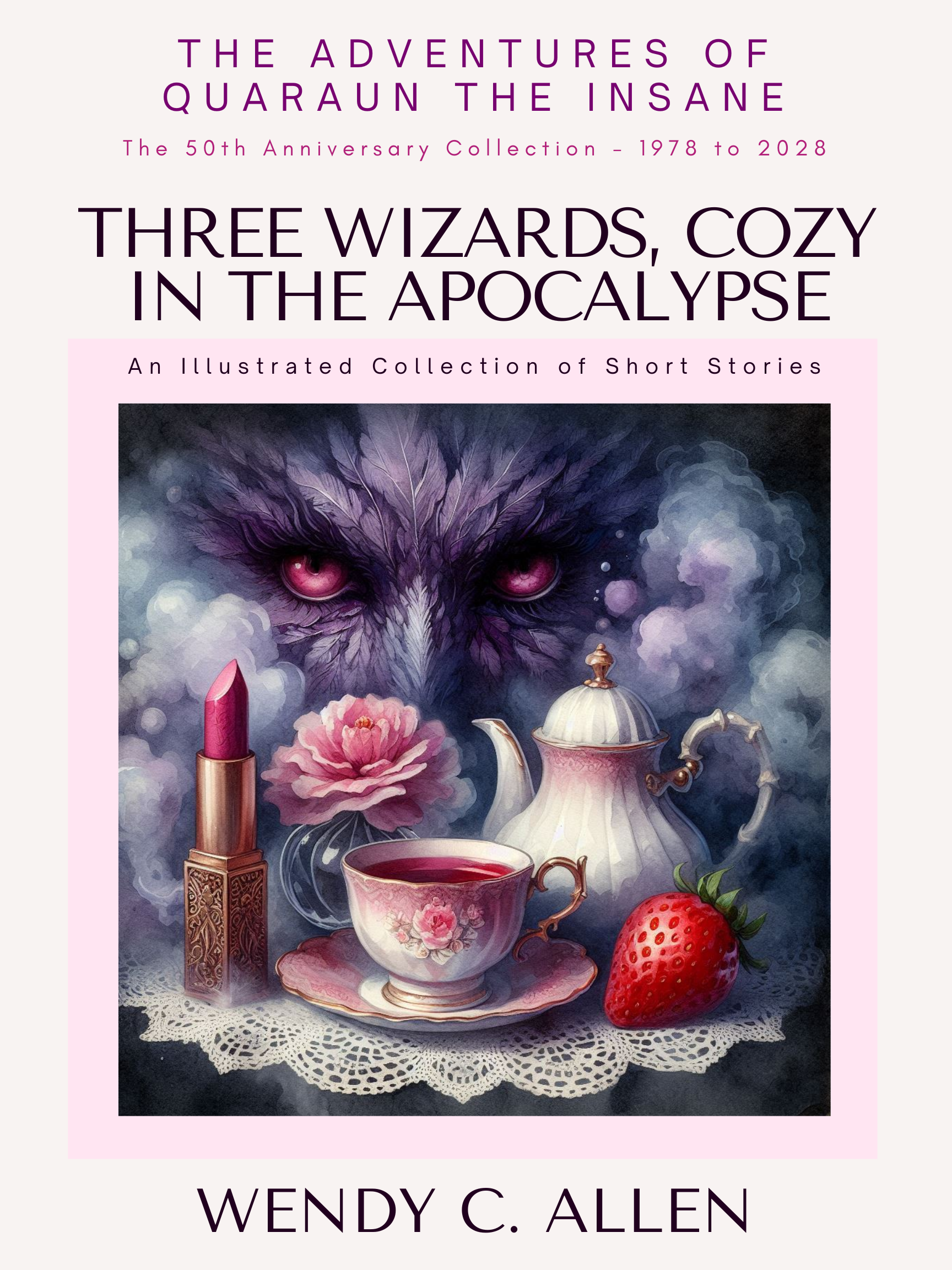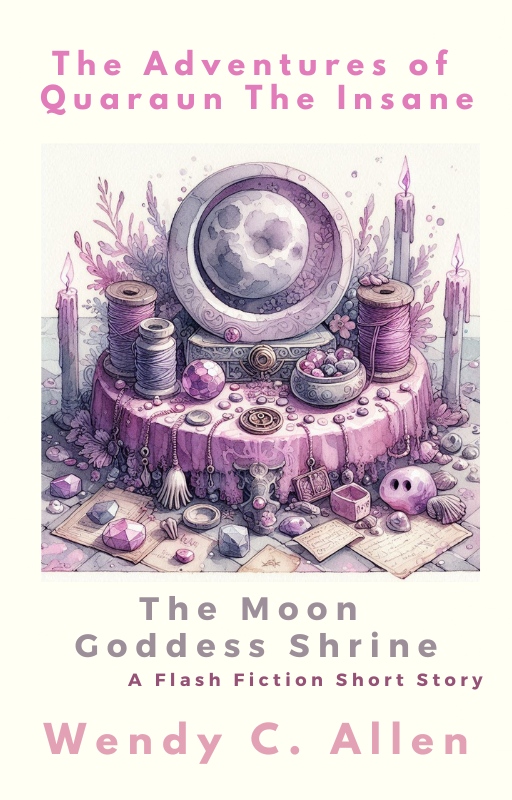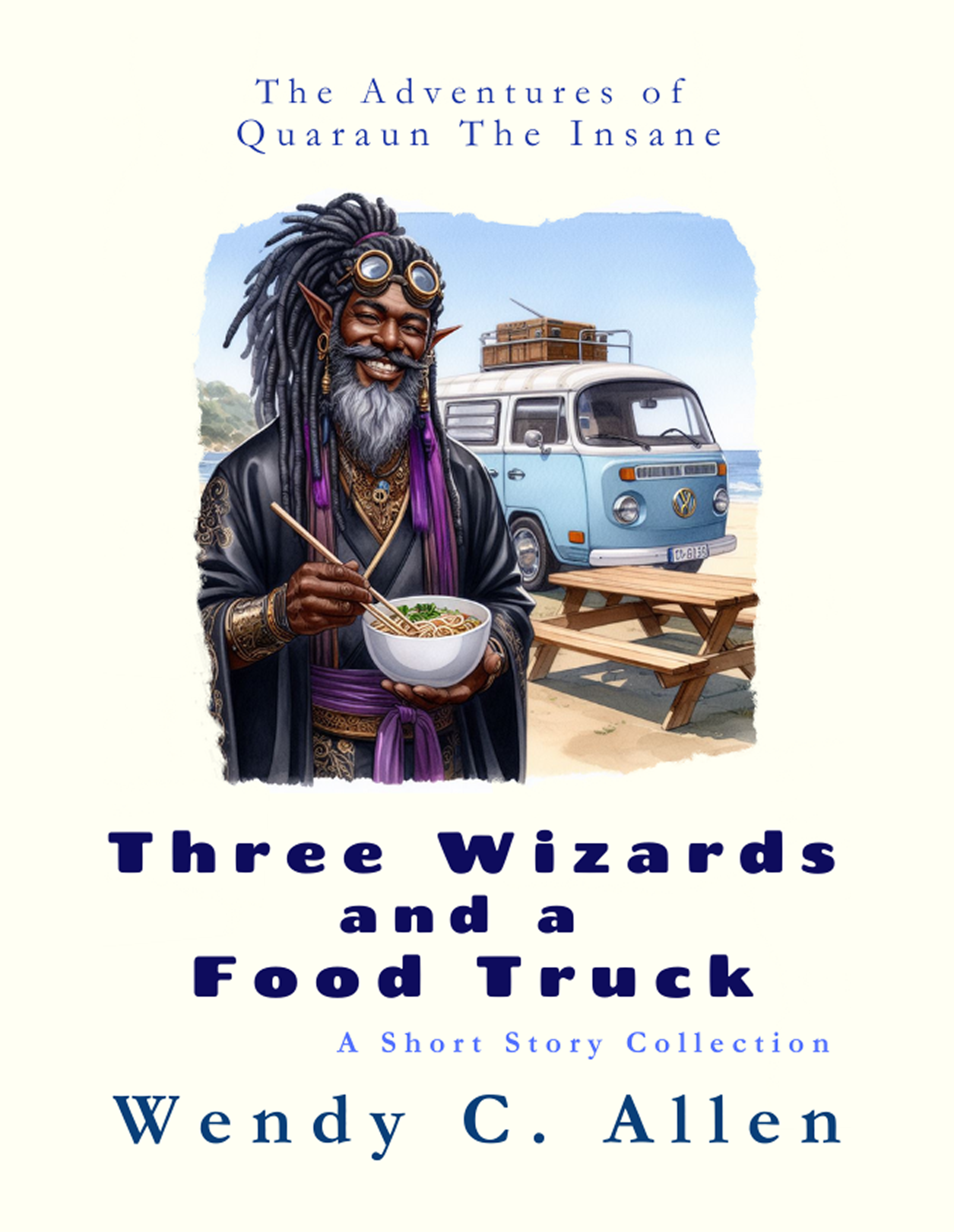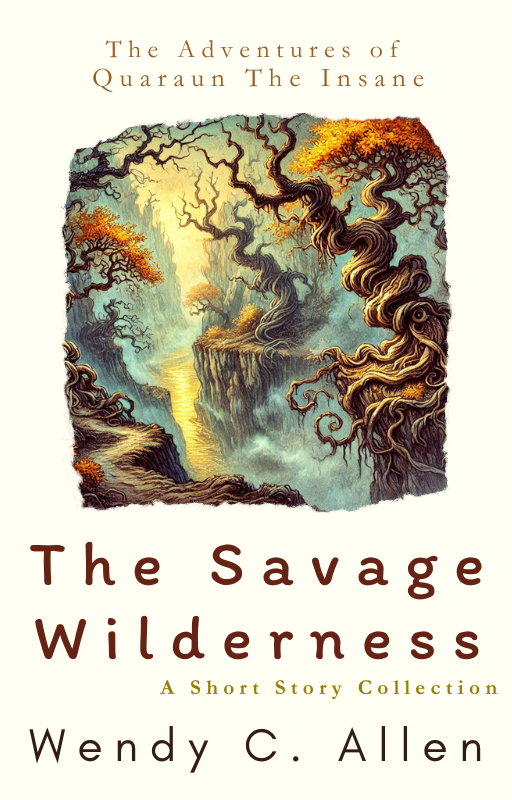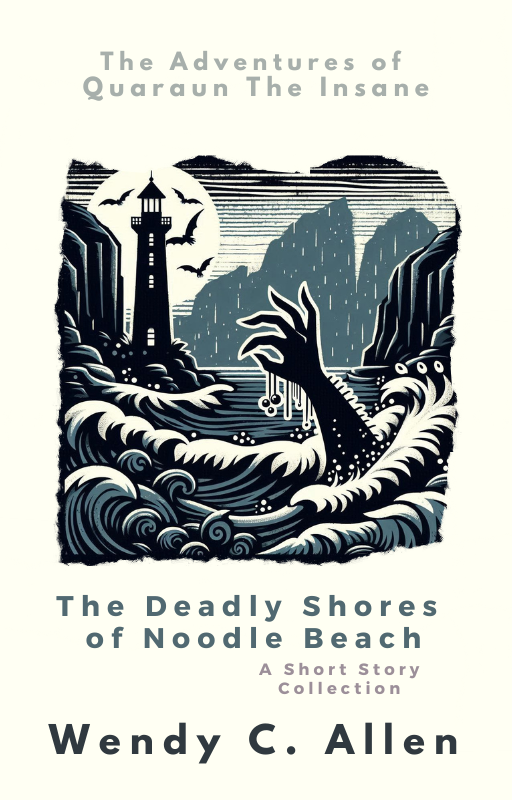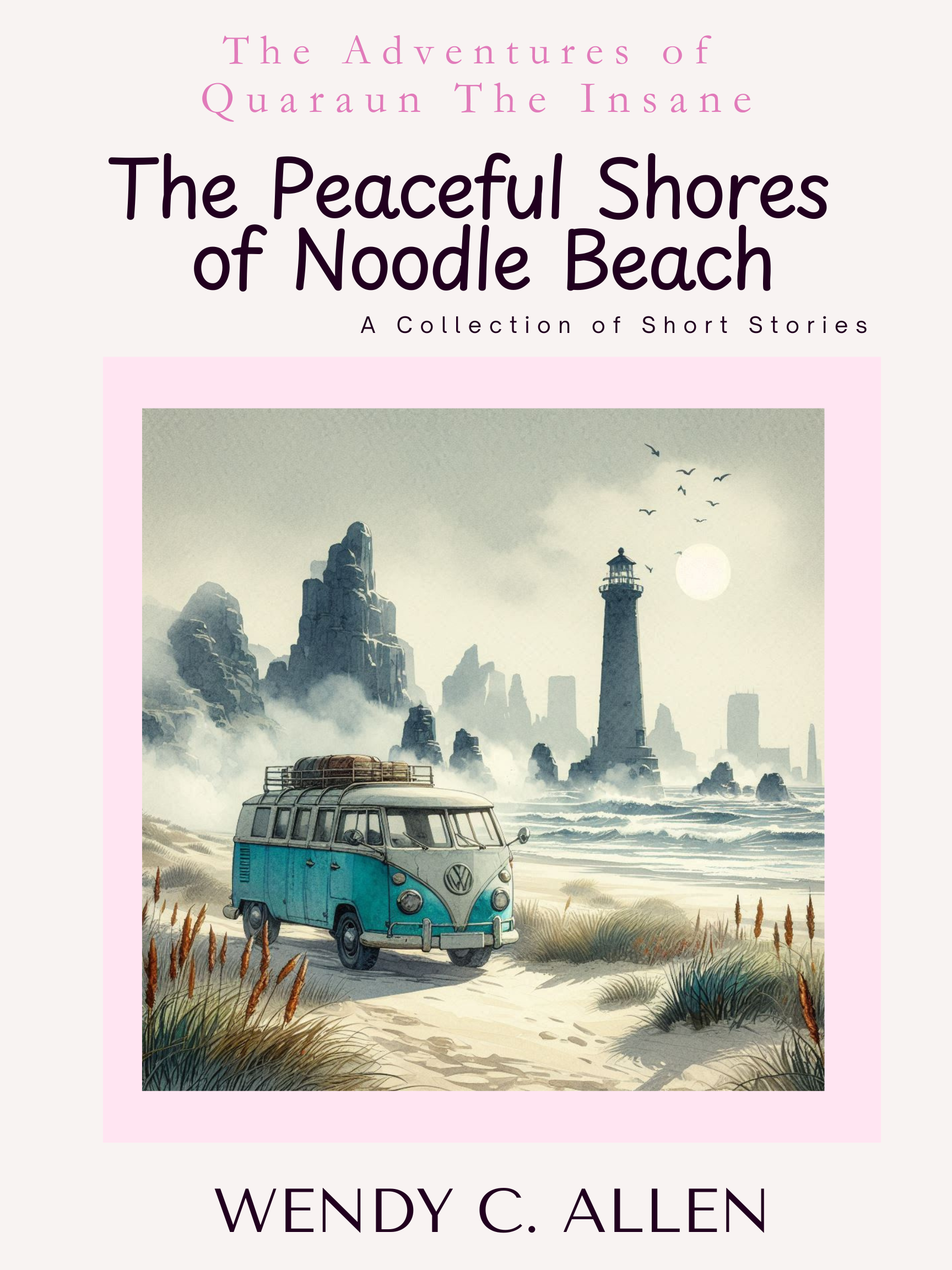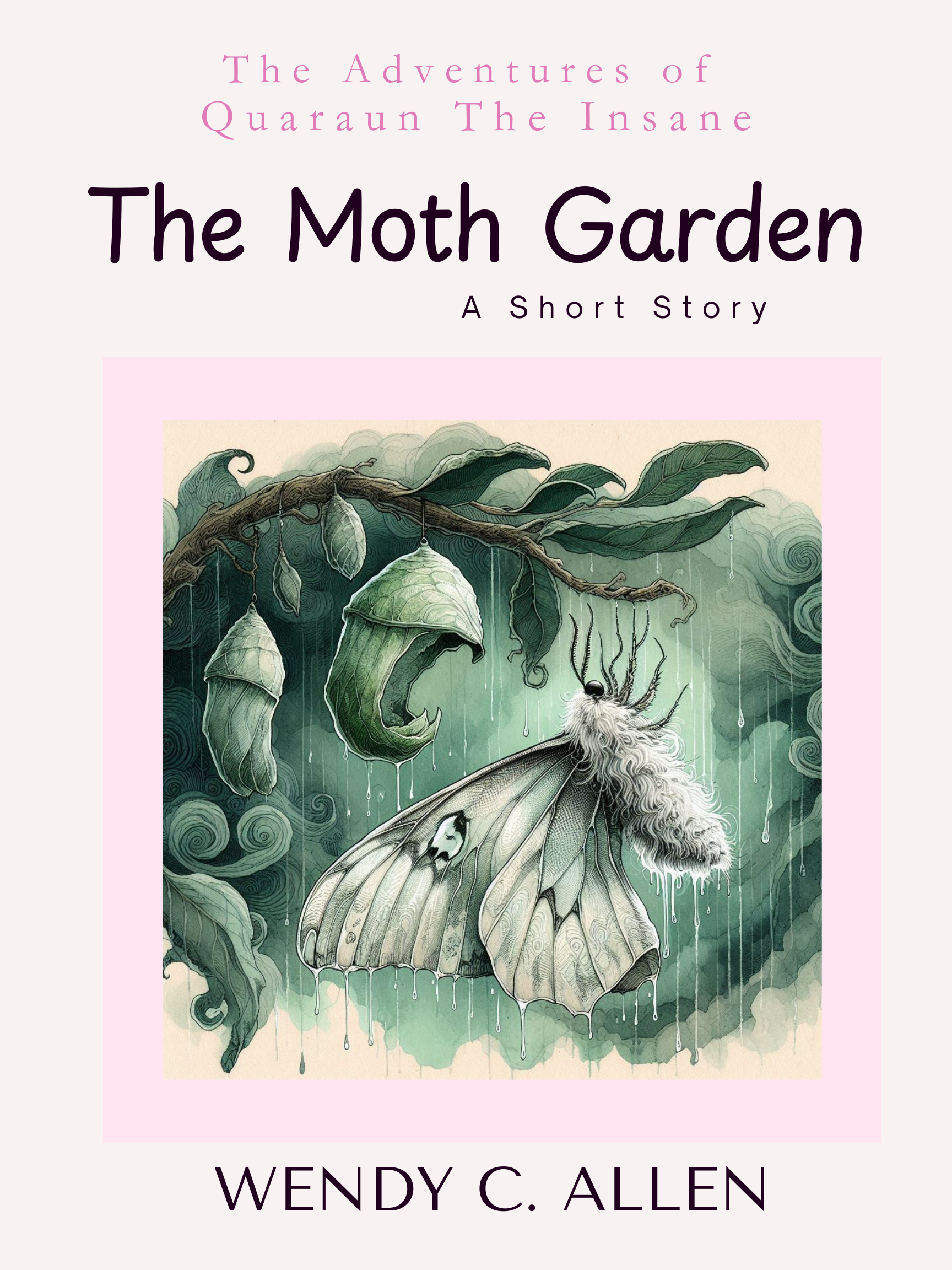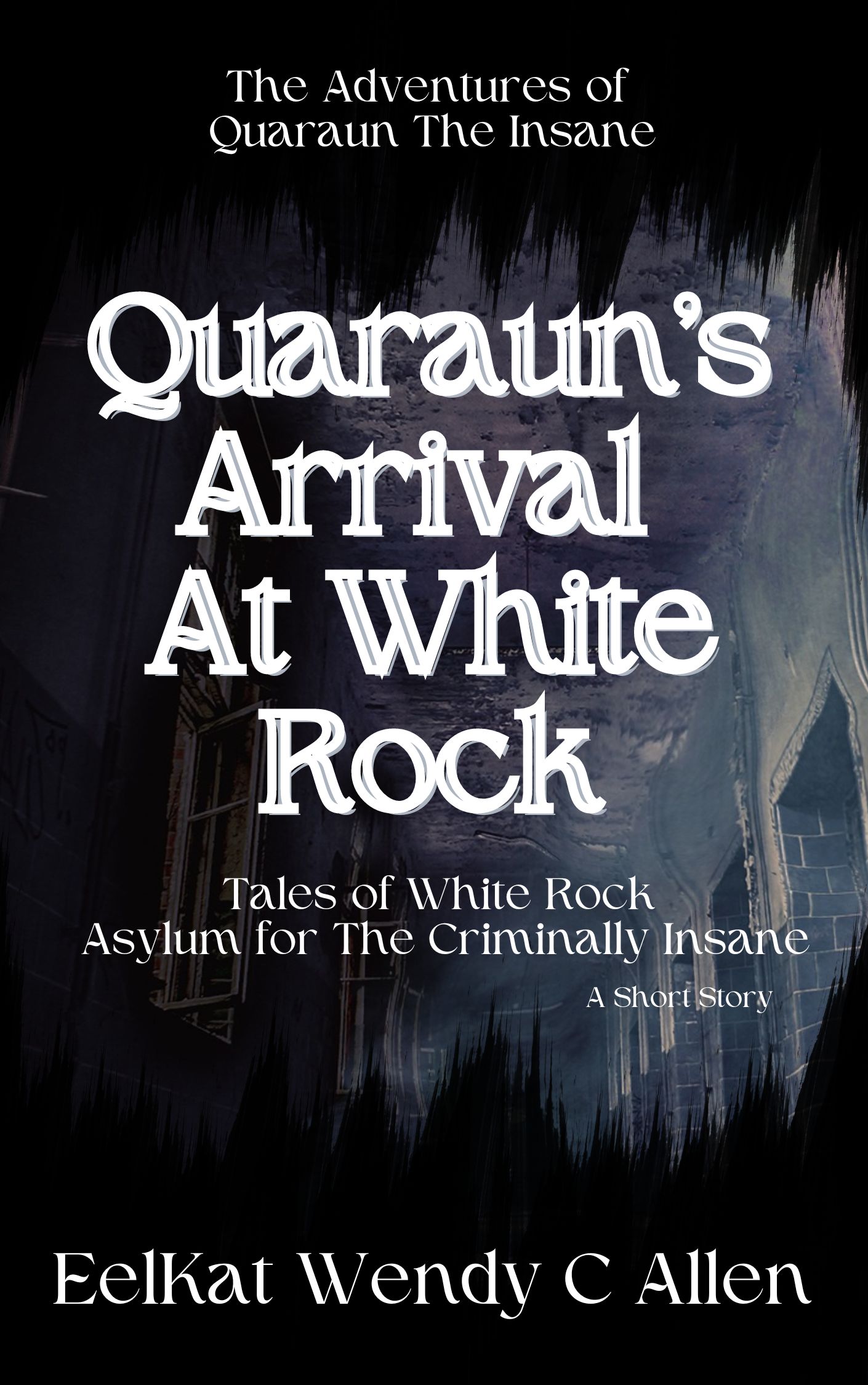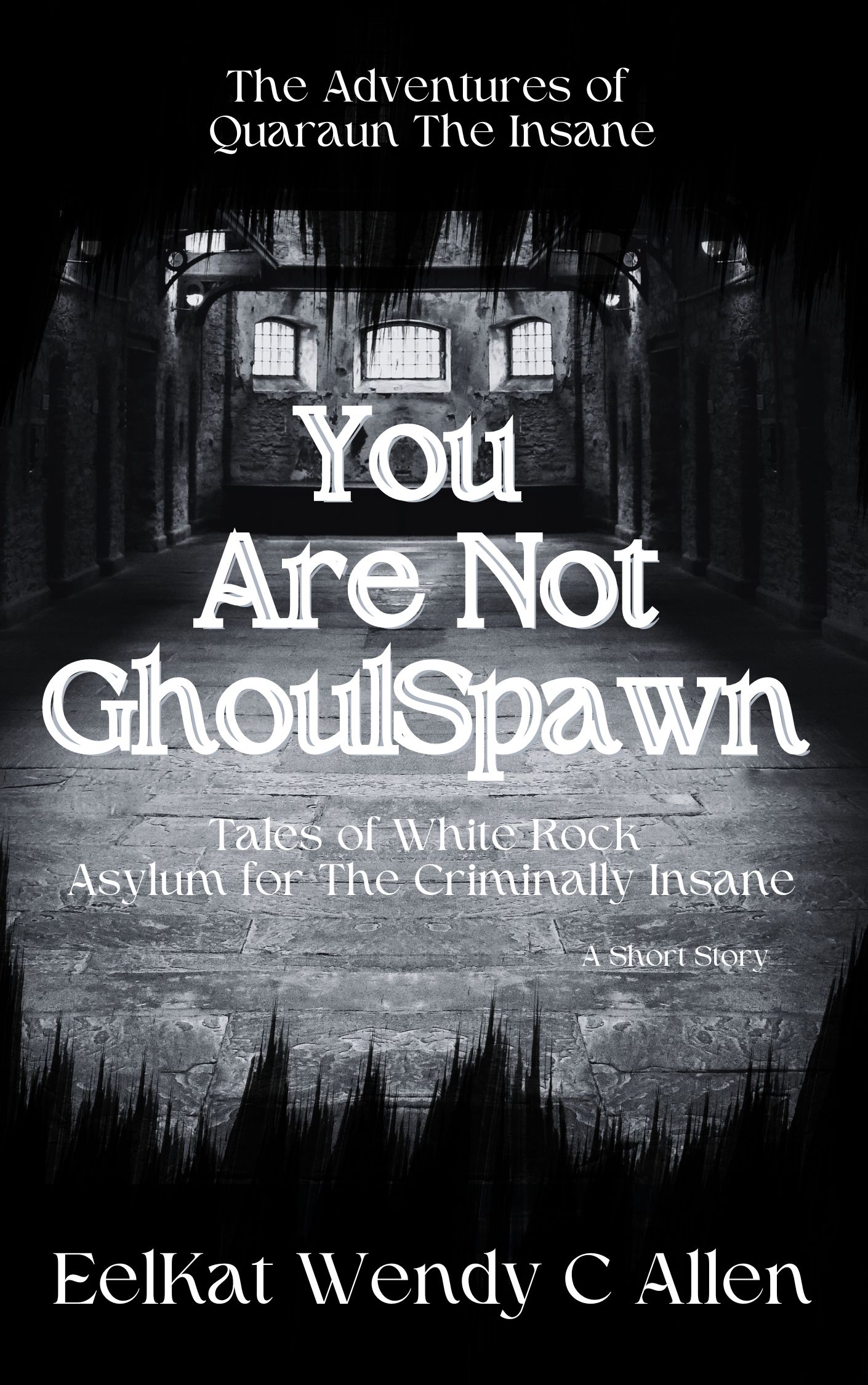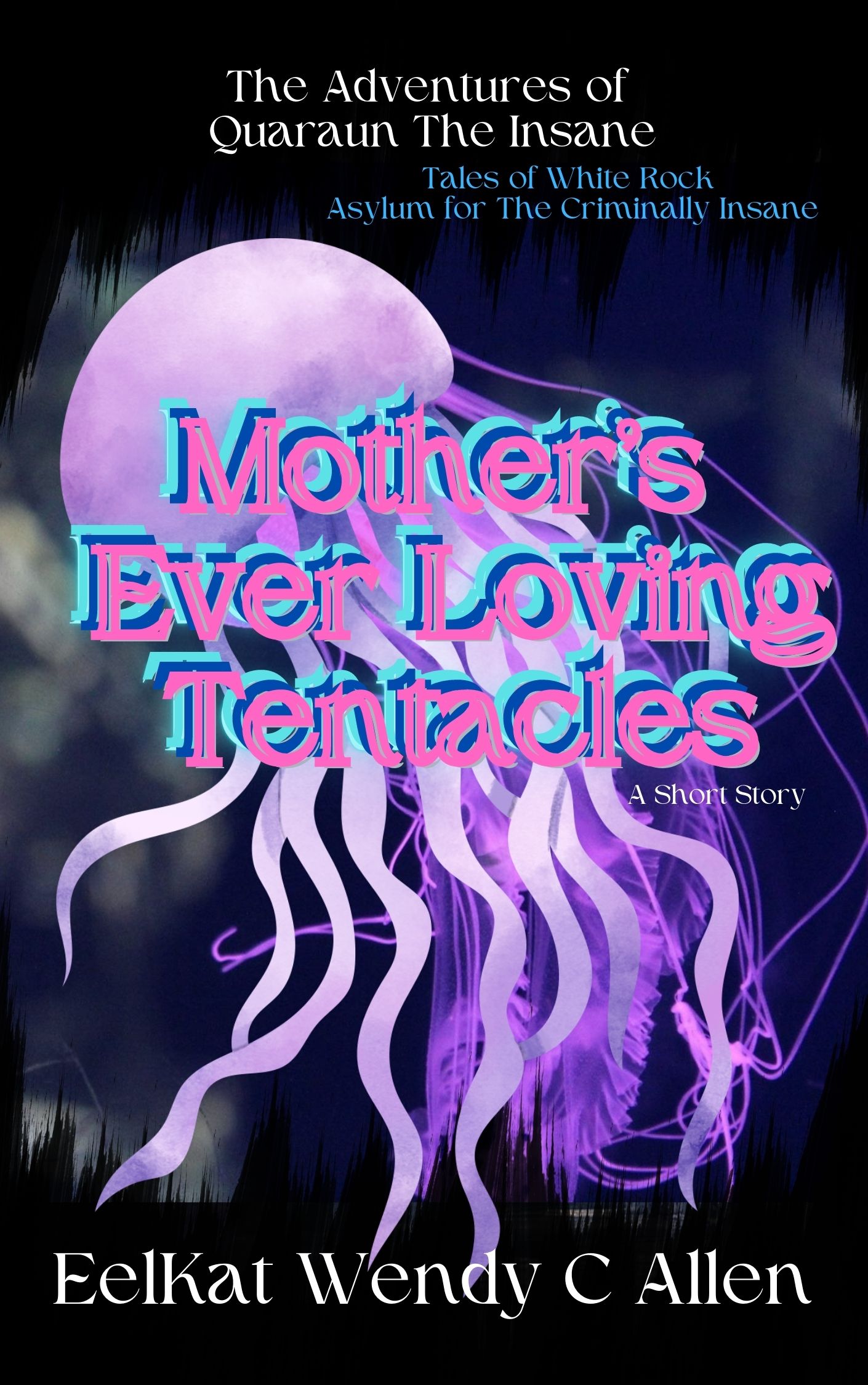Counting Down to the 2028 50th Anniversary of my first published book (September 23, 1978)
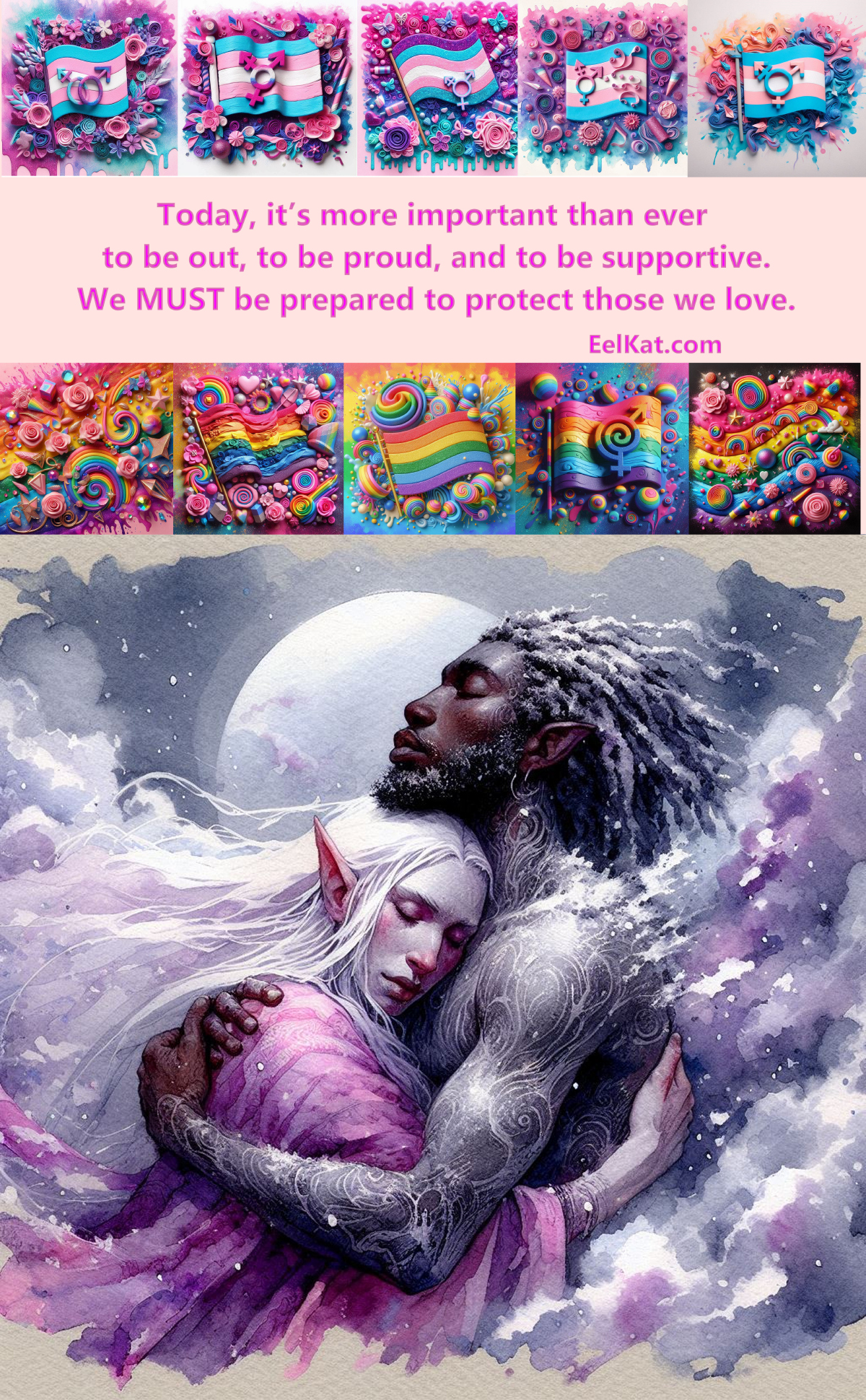 Transman Quaraun (The Pink Necromancer) and his husband King Gwallmaic (aka BoomFuzzy the Unicorn) King of The UnSeelie Court. Main characters of The Adventures of The Pink Necromancer series. Transman Quaraun (The Pink Necromancer) and his husband King Gwallmaic (aka BoomFuzzy the Unicorn) King of The UnSeelie Court. Main characters of The Adventures of The Pink Necromancer series.
|
This website is a safe zone for LGBTQAI+, pagans, polys, trans, neurodivergent, disabled, mobile aid user, minority, cosplayers, otherkin, furries, & BIOPIC communities.
If you are a hater, you can go fuck yourself.
Happy 2026!
It is our 30th anniversary here at Space Dock 13!
On the web since 1996!
You have encountered an extremely old website that continues to exist in old web ways, the same way it has done for now three decades.
In spite of being now 30 years old this year, started in 1996, it is still heavily active and old pages updated daily, new pages added daily, still now in 2026. All hand written, all hand coded (no AI), all by me, same as it ever was.
We Still Exist: The Old Web Did Not Go Away, You Just Forgot How To Find Us
|
This site was NOT designed for mobile devices (as they had not been invented yet when I created it) thus this site looks best on a computer, at 1280x768 or above. |
This is a very old website created in 1996, so, yes, javascript is needed for the site to work as it should. If things don't function, you may need to update javascript drivers on your device |
This site tries to be mobile friendly but it's been online since 1996, so old pages may not load right on mobile devices, and as this site has had pages added near daily for 30 years there are now over 20k pages here. |
Having started out in life as a GeoCities site, this site contains glitter, bright colours, blinkies, moving gifs, and other things the old web was known for. |
| The Park Bench Method of Writing Rapid Release Fiction Without Burning Out | Writing Advice | Writing Tips and Tricks | Writers on Writing | Writing Life | Cozy Fantasy Writing | Slice of Life Writing | 30 Days of Writing | Ideas For Writing Cozy Fantasy | Short Story Writing | Daily Writing | Writing Pulp Fiction | Writing 30 Short Stories In 30 Days | Write 30 Novel Chapters In 30 Days | Write a Novel in 30 Days | How I Write My Dark Fantasy Serial Fiction |
- EelKat Wendy C Allen: Old Orchard Beach's Autistic Author & Art Car Designer
- Just Write!
- Write something! Just do it!! Right now! Writing something! You can do it! You know you want to! I believe in you!
- Only one thing is writing...WRITING! So just start writing, right now, today.
- The Park Bench Method of Writing Rapid Release Fiction without Burning Out
The Park Bench Method To Writing
(Just the article - no prompt lists - go HERE if you want to older page that had the 10k writing prompts listed.)
(A weird writing method I invented for myself several years ago, and is how every volume of The Quaraun series is written.)
The Park Bench Method of Writing Rapid Release Fiction without Burning Out
NOTE: this article is OVER A DECADE OLD and I have not checked if the links to other websites are still active or not in nearly as long. The links to other sites were correct at the time this page was published, but the internet and websites on it have changed a lot in the last ten years, so the links to other websites may or may not still work.
| The Park Bench Method of Writing Rapid Release Fiction without Burning Out, by Wendy Christine Allen |
- EelKat Wendy C Allen: Old Orchard Beach's Autistic Author & Art Car Designer
- Just Write!
- Write something! Just do it!! Right now! Writing something! You can do it! You know you want to! I believe in you!
- Only one thing is writing...WRITING! So just start writing, right now, today.
- The Park Bench Method of Writing Rapid Release Fiction without Burning Out
Below, is an answer I wrote for a question on Reddit, but it took me several hours to write it and by the time I went to post the answer the OP had deleted the thread.... sooooo, I do not have the link to the original question in full, and only have the parts of the question, which were in the quotes, so not all of their question is here, but basically, the question was asking for advice on how to use writing prompts as a way to teach themselves to writing shorter stories then epic novels.
Here is what little I have of their question, followed by my answer:
>>>How do I write a simplistic and small scale story, Cause all my previous projects have been too ambitious and I wanna try something new now….
>>>So basically pretty much every story of mine before this has been too large scale and complex, but I feel like I should try to make a simple and small scale one this time, as I think this would certainly make me and others believe that I am a capable writer and not just someone who makes too ambitious stuff……
>>>I don’t know what to write about to practice and improve my writing.
>>>I actually wanna how can I make it simplistic, yet not boring or stereotypical in any shape or form, and it still generates interset among the readers.
>I don’t know what to write about to practice and improve my writing.
Anything.
Everything.
Look at your local news and write opinion commentary blog posts on why you agree or disagree with the situation. Then, write a second one from the point of view of the opposing side.
Write fiction and nonfiction both, so that you get practice with each.
Write 1k word shorts, 10k word shorts, 30k word novellas.
Write in different genres.
Write something every day.
Strive to finish every piece you start.
Strive for each piece to be 500 words longer than the piece you wrote the day before.
I am completely the opposite of you. I simply can't write long stories, complex multi-faceted plots, large ensemble casts, finely woven multi-sub-plots, or ambitious stories. And there was a time when this frustrated me, because, I had gotten it into my head that in order to be "*a REAL writer*" I had to write big, epic, complex novels. I got this into my head, because I loved short stories, and I read tons of them.
While I also read a lot of novels (I go through Harlequin Romance novels and Star Trek novels like they were candy, reading 1 to 3 a week), my main reading is short stories in the 10k to 15k word range. I'll read 10+ short stories in a day. I subscribe to dozens of literary print magazines, I buy every anthology and collection I can get my hands on-with no concern for who the writer is at all-I just can't get enough short stories. It's kind of an addition-a big one-reading short stories takes up the bulk of my non-writing time. Most of my days are spent either reading or writing short stories because I rabidly love doing both.
My writing short stories fall into one of those categories where writing is like breathing, for me, and I just can’t not do it. While I do publish some of my work, the vast bulk of my writing never gets published because I write mostly for the fun of the physical act of writing, and not everything I write ends up publishable or even something I want to try to edit to make it publishable.
In 1978, 44 years ago, I started publishing short stories in little literary magazines, and readers liked those and so I wrote more. And I just kept writing more short stories and print magazines kept publishing them, and after a few years, it occurred to me, I don't need to write novels, because I don't want to write novels. I like writing short stories. The *”real writers, write novels”* mindset drifted away and I just dove head first into writing short stories for print mags as my full time career.
And as the years went by, I fell into this "formulae" or "structure" that just became my default normal "template" to go to to write all my stories by. It works for me and the series I write, because each story is usually 7k to 15k words long, some shorter, some longer, but most are in the 10k to 12k range.
The thing I like to do, that might help you (or not, who knows?), is to write little quick one scene stories revolving around just a quick 15min to half hour space of time in a person's (character's) life.
I developed this weird “man on the bench” method of writing, which became the norm for the bulk of my stories. The idea is to take a man (or woman or child or elf or whatever you are writing about)... take a man, sit him on a bench, and just start writing. Who is he? Where is the bench? Why is he sitting on the bench? What can he see from this bench? What can he smell? What can he taste? What can he touch? What does he feel physically? What does he feel emotionally? What is he thinking about? And just write the answers to these and other similar questions until you reach around 10k words, and then, stop writing. The end.
I believe, in Literary Genre terms, most people would call this “a character study”? But I’m not sure. I was told once that this is what I was doing, that my short stories were all character studies, rather than actual plotted stories.
Now, I will point out that my writing falls far from the action-filled, fast paced norm. There are no fights or wars or kings or factions or sex or car chases or sword play or heroes on quests or adventure parties or hero journey’s or saving damsels or any other sort of action type thing that you would normally see in most novels, or any short stories with plots. My stories ARE extremely character driven on the deep-end of the bell curve extremes, to the point of often containing no plot at all, and literally just being a character sitting and thinking, and taking in the surrounding scenery. And there is not a lot of demand for this sort of thing either, so know that if you do end up writing this sort of thing and wanting to publish it.
Most of my stories follow this same format of starting out with a character sitting somewhere, reflecting to himself or talking with a companion. Not always a bench. Sometimes it’s a table in a tavern, a bar in a pub, a log by a campfire, a pile of pillows in a tent, a rock by a mountain stream…any place a character can sit and relax, sit and think, sit and chat with a friend, that’s where I start.
I don't outline or pre plan before I write. I'm what most people call a pantser, I think. Though I think "improv writing" probably better describes what I do. Perhaps the snowball method (not snowflake method) best describes what I do? I don’t know. I don’t follow any sort of method/template created by anyone, I just kind of do my own thing, and figure out what works for me, and I’m not sure if any of the “methods” out there actually match fully what I do or not.
My method is, I take a character and I put them in a location, and then I just start writing and see what happens. For example I take a man, sit him on a park bench and start writing.
I sit my character on a bench (if in a city) or a log (if in the forest) or at a table (if in a building) and just write a scene of the character talking to himself about what he sees.
The idea is simple: take a man sitting on a bench, and write about him and only him, for the next half hour. Why is he there? What is he doing? What is he thinking? Where is the bench?
Start the story at the point where he sits down, end the story at the point when he stands up again.
Never tell anything about what happened before he sat down.
Never tell anything that happens after he stands up.
Don’t plot.
Don’t plan.
Just start writing and see what happens.
I like to ask "What if" questions and just write the answer right into the draft. It'll be something totally random, I never know ahead of time what I will write.
Using the man on the bench as the basis, I could ask questions like:
- What if the park borders a river and the MC witnesses a child running too close to the edge, slipping, and falling into the raging rapids below? What do the MC do? Does he try to save the child? Does he call for help? What if he can't swim?
I would now write that scene. Write the MC sitting, listening to the sparrows twittering in the rose bushes along the riverside, smile upon hearing a child run by, look up in time to see the banking give way under the child's feet, and write his reaction.
Now maybe the scene doesn't match the story, but I will write it anyway because it'll be character building practice that will help me get inside his head and see what type of person he is, based on how he responds to this situation.
- What if it's not the MC who sees the child fall? What if it's the evil super villain of the story? Rescuing the child could show the reader that he has a caring side, while ignoring the child could show the reader how pure evil his heart really is.
Let's go back to the pack bench. There is no river. There is no child.
- This time it's a city park, surrounded by lots of tall buildings. People and pigeons scurrying through, going about their day. The MC is sitting on the bench feeding pigeons and watching people buying hotdogs from a food cart, when suddenly a speeding car veers off the road, careening out of control across the grass heading straight for the hotdog cart. What does the MC do?
See how What If? changed the story?
- Let's say the park is in a tourist town and a carnival is setting up rides and games and food trucks, while craftsmen set up booths to sell their wares. What does the MC do this time?
Or how about this:
- What if while sitting on the park bench, the MC is reminded of his wife? He misses her. Why? Is she dead? If so, how did she die? Are they divorced? If so, is it because of something he did and he feels guilty about now? Did he cheat on her and get caught? Did she cheat on him and he caught her? Maybe she's sick, in the hospital dying with cancer and this park is outside the hospital and he came out here to get away from the sounds of the beeping hospital equipment that is counting down the hours to her death. Lots of ways this can go, depending on why he's thinking of his wife and where she is right now.
Or maybe this:
- What if the park is a dog park and he's watching his dog play with the other dogs? What type of dog does he have? How did he get it? How long has he had it.
- What if it's not a park, but a beach on the ocean? He's listening to the sound of the waves, smelling the salt ocean, watching sandpipers run back and forth with the waves snatching up periwinkles, watching the seagulls fight over a lone crab, watching terns skim the water, smelling the rockweed at low tide, watching the lighthouse keeper on his ladder repainting the lighthouse, feeling the warm sun on his face, the gritty sand between his toes. Why is he here on the beach today of all days? Is it a good day, and he's here with his family, watching his children build sand castles? Is it a bad day, his child has been kidnapped and this is the drop-off point for the ransom money? Was there just a hurricane and he was part of the clean up crew that's pulling a dead whale off the beach? Is it the frigid cold of winter of the Atlantic north and he's watching an iceberg slowly float offshore while digging for clams? Is it a blazing hot heat wave in Florida's south and he's sweltering hot and thinking about where to buy a cold drink?
Let's change it up again:
- What if it's not a park bench, but a bus station bench? Is he picking someone up? Who? Why? Is he leaving somewhere? Where? Why? Is he homeless and waiting for the next round of buses, in hopes someone will toss a half eaten sandwich in the trash?
Do you see how many ways it could go, if your next scene just tosses a park bench into the scene and your MC is sitting on it?
You now have to answer where the bench is, why the MC is sitting on it, what the MC sees, hears, says, thinks, and feels as he sits there, and how he responds to those things.
And there are hundreds of places that have benches, so hundreds of places your MC could be, thousands of things he might see.
And you can do this with any genre.
- A bench in Romance, maybe this is where he and his lover first meet.
- A bench in a Western, maybe he's the town sheriff watching the saloon waiting for a fight to break out.
- A bench in a Fantasy, maybe its a bench in front of the blacksmith and he's waiting for his new sword to be finished.
- A bench in a SciFi, maybe it's outside of a space terminal and he's waiting for a shuttle craft to arrive so he can go to his new job on the starship.
- A bench in a Horror, maybe that creepy guy on the next bench over is about to follow him home.
- A bench in an Urban Contemporary, maybe the bench is in front of the bike shop and he's taking a break from repairing a customer's hog.
- A bench in a Zombie Apocalypse, maybe he's considering using the bench as part of a barricade to keep the undead out of his campsite.
But I could just as easily use the example of an MC walking his dog down the sidewalk. Or the MC enters a store or a library or walks past the high school football field.
Maybe your MC is hungry so you send him to a restaurant or tavern or bar or McDonald's.
Think about who the character is now. Right now. Here on this bench. Don't think about his past. Just think about his now.
What does he do? What does he feel? What does he say? What does he think but leaves unsaid? Why is he here? What is he likely to do? Why is he like this?
Is he bitter? Cynical? Depressed? Pessimistic? Optimistic? Opportunistic? Why? What made him this way?
Rich? Poor? Homeless? Jobless? Eating on his lunch break? Happy? Angry? Sad? Content with life? Stressed out? Suicidal? Why? How did he get like this?
If they know a lot about a specific subject - why that subject and how did they come by that knowledge?
What relationships are important to them now - could that be explained by relationships they had in the past?
For example, if they had an absent parent, that could explain why they're so attached to a mentor-type character now.
Where did they start?
Where are they now?
What logical path can you draw between the two?
I explore why he is sitting on the bench.
- Is he a dog walker at a dog park, sitting with other dog walkers while their dogs play? Is he a single dad taking his toddler on a picnic? Is he an elderly man, sitting and watching the sunset while thinking of his youth? Is he a homeless man claiming this bench as his bed for the night? Is it a bus stop bench and he's waiting for the bus? Is he a trail hiker and this is a bench on the Eastern Trail?
So many possibilities.
I can (and do) take this same writing prompt, a man on the bench, and write it every day and have 365 completely different stories about 365 completely different men in 365 completely different settings after a year. And do it year after year after year, and always come up with something different because the possibilities are just endless. And this is why I am able to write so many stories, so fast. I write 5 to 10 stories a week and publish 1 to 3 a week.
And you are not limited to one genre. Regardless of genre, format, or theme. Horror, Fantasy, Romance, SciFi, Bizarro, Absurdism, Dystopian, Westerns, and every other genre I write (I write short stories under 15 pennames, one for each of 15 different genres) if ever happen to read my work, you will quickly notice that every story I write starts with a man sitting somewhere.
In a tavern.
In a church.
On a beach.
By the lake.
On a boat.
On a log in the forest, by a campfire.
On a bed in a motel.
In a car behind the wheel, parked in a remote alley.
There are so many places to sit and think.
So many locations those sitting spots can be.
So many reasons your character might be there.
And the story always starts with him commenting on something he sees or hears or smells or tastes.
Then someone else is there and he starts talking to them.
Then the conversation leads to them getting up and going somewhere and doing something.
And the story snowballs from there.
I usually get ideas for what to write next by going outside, walking my dog around the town and just looking at things going on, and asking "What if my MC saw that in the next scene?" And when I get back home, I write the answer to that what if. And usually while I'm writing I think of more scenes to write and write those, and before I know it I'm back on track making the start of my story connect to the end of my story.
Almost everything I write finds basis in something I saw, smelt, felt, or heard while I was walking my dog that morning.
What works for me (though may or may not work for you as everyone is different) is to simply NOT think about my ideas at all. Instead just write the story down.
When I get a new idea, I just write it down immediately, exactly the way it came to me.
If an idea is that "Rapunzel lives in a lighthouse not a tower", I simply write down Rapunzel living in a lighthouse. I will describe Rapunzel and her lighthouse. I describe a scene of her in the lighthouse and what she is doing. This will usually take around 300 words. Most of my ideas, when I write them down, are 300 to 500 words.
Now if I'm working on another project this idea will be put in my idea file and I will finish the project I'm working on before starting this one.
When the current project is finished, now I look at my idea file and ask, which of these ideas should I work on? Which has potential to be a good story? I may take one and work just with that.. or I may take 2 or 3 that sound like they could work together and combine them into one. Let's grab Rapunzel's lighthouse and the man on the bench and see what we can do with that.
The first thing I would do is open a new LibreOffice file, and copy each of the two 300 word ideas into it. Now I have to decide who is the main character, the man on the bench or Rapunzel in her lighthouse. I also have to decide: Who is this man? Why is he on this bench on the beach in view of Rapunzel's lighthouse? Why is Rapunzel in a lighthouse? Do they know each other?
And I write down my answer for each immediately, directly into the story.
And if you know the Quaraun series, you know where this is heading. Quaraun has 12 foot long hair and he lives in a lighthouse. Yep.
And I keep asking more questions. In this instance I'm thinking of:
Is he a prince trying to save her? What if she doesn't need saving? What if her being imprisoned is just a rumor started by small minded jealous people who are jealous that she seems to have an easy life, and so they started the rumors of her needing rescue just so they could sit back and laugh at her frustration of trying to drive out horny princes? What if she isn't even a she? What if she is actually a man who just has really long hair? But why does he have long hair? What if he's a wizard who refuses to cut his hair because he believes he gets his magic powers from his hair? What if the lighthouse isn't a lighthouse, but is actually a wizard's tower, but wizardry is banned so he casts an illusion to make his tower look like a lighthouse and he pretends to be a lighthouse keeper so no one will know he's a wizard and he's majorly pissed at the endless line of princes who won't stop trying to rescue him, because they risk ruining his cover?
Do you see how the idea snowballed just now?
Yes. Yes this is how I created Quaraun.
Well, if I was writing this as a story instead of a Reddit post, I would answer each of those questions in story format directly in the story. Within the next 4 hours I will have a 10k word story, written down and done. Just needing to be edited and rewritten into publishable format, which will take another 4 hours to do. By the end of the day, after about 8 to 12 hours of writing and editing, I will publish this 10k word story.
The next day it's back to the idea file to start a new story.
So can you see what I'm saying?
You really don't need to start with a big idea, some magnificent plot line, a grand character arc… nothing like that at all. All you need is to take one character, toss them in a seat, and just start answering what if questions about who they are and why they are there, and within a few hours, you will have a story completely written from doing absolutely nothing other than answering what if questions about that one character.
So, you see, backstories, plots, outlines, acts, arcs, lore, beats, none of that stuff ever come into play. It's just not something I actively sit down and think about.
But, backstories can be picked up on when reading my work. Like one character who shows up frequently, was a black street gang leader in his youth, a former drug dealer who went to prison for murder. That is his backstory. In the stories he's elderly, been out of prison for a couple of decades, but his past prevents him from getting a job, getting housing, or even making friends. He's homeless and jobless, because no one gives him a chance to even try to prove he's reformed. And so, with this character, you see his backstory of having gone to prison for murder mentioned a lot, because characters around him bring it up. He tries to get a job and the interviewer points out they don't want to risk hiring someone with a felony. He tries to get an apartment and young white mothers in the building protest a black ex-con living in their flat where their children play. In the case of this character his past is ACTUALLY important to his present plot points, so it gets brought up throughout the story.
I emphasize ACTUALLY IMPORTANT here, because this sub is filled with hundreds of threads and discussions on backstory and you frequently see writers 100% the backstory is important, and rarely is it.
And I bring this up because, often, when someone says they are writing big, ambitious novels, often, what they mean is they can’t stop adding more lore, more world building, more character backstory… more info the reader NEEDS to know about this minor one shot barmaid that they are only going to see on one page of the novel, but the author thinks they have to write 20 pages of her history of how she came to work at the bar… no! You don’t even need to give her a name to describe her clothes or features. Just say: *The barmaid served their drinks.* BOOM! Done! The reader only NEEDS to know the MC and his buddy got the drinks they ordered, they don’t need to know the name of the barmaid, what she looks like, what she wore, where she lives, what dark past drove her to work at this particular bar.. I see so many writers, write 200k word novels, and a good 150k words of it is nothing but pointless side character backstory that doesn’t mean shit, doesn’t move the story forward, and has nothing to do with the MC.
I used to be a slush reader for a lit mag a few years back, and the magazine only accepted up to 10k word long stories, but dam, you could begin to imagine how many writers would send in a 75k word story and claim they couldn’t cut a thing because all the side character backstory and world building lore was NEEDED, even though none of it was needed.
UGH! I hated that job. Quit after 2 years. I love reading, but damn! I never knew how much mind-numbing crap agents and publishing houses had to sift through to find stuff worth publishing. Good god! 90% of the slush pile is stuff that could easily have 75% of the total words and 100% of the side character backstory and worldbuilding lore removed, without changing the plot or affecting the story at all.
So, yeah, that’s why I mention back story, as a thing to watch out for and not get caught up in because it seems to be the big place where a lot of writers get stuck. Most who say they are writing too long, usually it’s because they don’t stick their full focus on the main character, and instead try to flesh out the story by adding interesting side character backstories ad world lore, when instead they should just put on the blinders and focus 100% on the main character ONLY.
And well, that’s what this whole Man on a Bench method does. It strips out everything except the main character. Removes all side characters and lore and backstory and lets you just focus 100% on only the main character and tell only his story. And if you need a back story, well, it’s JUST HIS backstory only and you weave it in as you write.
For example: Is it important the reader knows your character's parents were divorced? Unlikely, unless the character is getting a divorce himself and asking his mom what divorce lawyer she used. In which case we learn the backstory of the parents being divorced when he calls his mom, says he's filing for a divorce and asks the name of the lawyer she used. There is no big info dump flashback of his childhood or the parents divorce. There is just one scene of him calling his mom and asking that question. His childhood backstory in one sentence. No need to write about the childhood itself.
99.99% of the time there is no need for an info dump, flashback, exposition backstory to be written in any story of any genre. They are rarely ACTUALLY IMPORTANT to the plot. In most cases they just come off as pointless filler that screams "Look at me! I can create characters! Yay!"
If character backstory is ACTUALLY needed, just write a sentence or two of it when it is required to be mentioned, make it part of the story, like the guy calling his mom in the example above, then keep on going.
Chances are very high, your stories will get too long and convoluted because you get hung up on lore and backstory, instead of focusing on just the one and only main character. And chances are also high your readers won't give a rat's ass what your character's childhood/past/backstory was like or what the world’s before times/magic history/creation of the gods/how the apocalypse happened/ect was and will just skip/not even read any backstory info dumps you write, because let's face it, there's nothing more boring to read than an info dump, which is why no one reads them.
And the same with worldbuilding.
Worldbuilding gets convoluted when you lose sight of the main character and what he can see. That’s why this bench method works so well for me. It reels in my worldbuilding (because I get hung up on detailing the entire planet) and reminds me to ONLY include the world building that can be seen from this one bench.
If the MC can not see it from this bench, then it’s world building that is not needed for the story.
Early in my fiction writing career, I got hit by the world building bug. I started filling up 3ring binders with notes and charts and graphs and maps and drawings. It was loads of fun and it lasted for about 10 years, most of the 1970s and into the 1980s. Today I have a bookshelf that is 21 feet long, 12 feet tall and has 750 of those 3 ring binders on it. Yes seven hundred and fifty 3 ring binders of world building brick a brach.
Was it a waste of time? Yes and no.
Today I know every country of every planet of three solar systems, have dozens of plants and animal species created, and 3 fictional languages fully fleshed out and 5 others partly started. There is one city mapped out to such extremes that not only is every street listed, but so too is every house and every name on every mailbox. A few of the main characters' houses are drawn out on actual blue print papers complete with electrical and plumbing charts. One house has a room by room list of every single item the MC owns. And while all of this is great for helping me visualize the world, none of any of the stuff I just listed here has ever appeared in any of my novels and probably never will be used for any future novels either. And so technically all the many hours, weeks, years, I spent on making those things was a complete waste of time.
Do I regret doing it? No. Because I did have loads of fun doing it. World building was and still is a wonderful hobby for me. But it was largely a hobby that in the grand scheme of my novels, didn't have that much bearing on my novels at all.
So while I recommend large scale world building as a very relaxing hobby, I also caution against deluding yourself into thinking of world building as writing. Because it isn't.
It can help your writing and it can make your writing better, but it can also be a massive procrastination time sink that prevents you from actually writing.
Do I use my 750 3-ring binders as reference when writing? Yes, I do. But not as much as you'd expect.
While the entire world and all its continents and countries and oceans and rivers and forests and cities -thousands of cities- are all fully mapped out and named, the bulk of the series takes place in a cold north region along the coast, an area about 500 miles long and 3 miles wide, with the MC being a merchant who lives at the north point of that area, and has a lover who lives at the south point of that area, and so all 138 novels and 2,000+ short stories published for the series since 1978, take place in the few dozen towns that exist along that one stretch of coastline, as the merchant MC travels that stretch back and forth to visit his lover and, the entire rest of the world never gets used at all, so only 5 of my hundreds of 3ring binders get used as reference, because they are the ones that chart out this tiny stretch of coastline, the forests around it, the tundra at the top, and the little fishing villages the merchant MC visits.
Three solar systems full of inhabited planets and mapped out civilizations, never get used or even mentioned in the actual published works. And this hasn't stopped me from world building. My world continues to expand and maps and charts continue to be made, even though I am fully aware that 99.99% of the world building I do will never appear in the published works. Like I said I find world building to be a relaxing hobby, so I go into it aware most of it is not going to have any impact on my novels at all.
So my advice to you is world build if you want to world build for the fun of world building.
But if you think you must world build in order to write, you should be aware that chances are high you probably don't need to do much if any world building at all. Even when writing Fantasy or Science Fiction. Often all you need is a generic town.
Most Fantasy, for example, can be slapped into any random generic Medieval style village and the lack of world building does not have any effect on the plot at all. Most magic systems, really aren't unique and don't need explaining.
Cosmology, technology, governments, religion, cultures, while nice, and were loads of fun for me to create, are going to be of little interest or use to my readers and so I just don’t include that stuff. I write the lore and backstories for me, and I write the interesting story stuff for my readers.
What I have learned from decades of large scale world building is that, usually you don't need to do any world building ahead of time. Usually you can build a world as you write.
For example, say your MC has been walking all day, he's tired and just wants to find a bed to sleep in for the night. So, you world build to describe that he sees a village ahead. You world build description of the village, telling what the MC sees as he walks down the street looking for a boarding house. If it's winter you describe the snow, if it's spring you describe the flowers. When he finds a room to rent he describes the wallpaper and carpet or lack thereof.
If he needs to cast a spell, you just write him casting the spell. Show him mixing his potions, waving his wand, chanting his spells, or whatever other method he uses. The spell works and the reader accepts that it works and the story continues on. No need to write the history of how the world discovered magic and why magic works.
Do you see? Large scale world building is not needed for the actual story. When writing the actual story the MC only sees what is immediately around him. A single room. A single street. A single town. And the world at large, is meaningless for the story. This is why most world building is pointless when it actually comes time to write the story.
Even in something like Game of Thrones you don't need much world building. You can write a 1,000 word description of 5 kingdoms fighting to rule the world and be done with it. Because the story itself takes place in generic dime a dozen castles and generic dime a dozen battlefields and generic dime a dozen dungeons and generic dime a dozen bedrooms. You only need to describe the room the characters are standing in. No need to actually build an entire planet.
In mine, I have this massive magic system built (the MC is a Psion/Necromancer, and his lovers are an Illusionist/Alchemist and a Portal Master/Sorcerer/Pyromancer, and there are several minor characters who are different types of mages) but, when it comes to writing, the magic system itself is never written out. Never. In a series with 138 novels and 2,000+ short stories published since 1978 - not once is the magic system spelled out or explained to the readers.
Why?
Well, because I personally don't like reading magic system info in novels. I as a reader don't give a shit about the laws and rules of magic. I don't read novels expecting to read a text book on the hows and whys of the world, it's magic, it's governments, or anything else. As a reader, I find all that stuff boring as shit. So, when it comes to my own writing, I just don't do it.
So, why build a detailed magic system at all (which in my case fills 5 notebooks/3-ring binders of charts and graphs and drawings and diagrams and backstory and rules and lore.) if I'm not going to put that info in the novels?
Because, I as an author, need to know how magic works, so that my mages can do consistent magic things. I the author, need to remember that mage A can't cast spell B because of reason C, so that I don't accidently writing him doing B 2 chapters after he tells another character he can't do it.
So, for me, it's a personal preference thing. The reader SEES 800 year old mage A doing X and 2,000 year old mage B doing Y and there's no reason for either of them to step back and say: I can do X because blah, blah, blah.
If it's not important to the plot, you have no need to include it. And when it comes to world building, magic systems, and governments, I've yet to read a novel where those things were actually important to the plot.
This includes magic systems. Look at the magic in Lord of the Rings. We see magic happen. We are never told the rules of magic or why magic works, because we readers don't need to know that stuff. Magic is real and this character knows how to work it, that's all you need to write. The reader has no need to know the rules. The rules don’t matter to the reader.
When it comes right down to it, you really only need to build in the 10 foot radius around where your main character is standing. Chart out every place your MC is going to stand, and build an area 10 feet in diameter around each of those spots, because that really is all you'll actually end up using when you write the story.
The same applies for cultures and technology as well. I built vast cultures for several societies and the world has future science that includes time travel and genetic manipulation. But in the actual published works, the MC lives off grid backpacking in a tent in old growth forests. And while the series is set in 2525 and 1978, most readers assume it is set in 1400s or 1800s due to the MCs off grid lifestyle and the fact that he encounters modern tech or even things like electricity so rarely.
The MC and his personal story, just doesn't often cross paths with the world's society as a whole, making most of the world building in the culture and technology pointless when it comes to the actual plots of the novels themselves.
The MC is a person living their life and just like real people, all they really know about their world is the little local it they’ve experienced personally, and so nothing beyond the MCs front door even needs to be built, and no part of the magic system that the reader doesn't see, ever needs to be mentioned.
Like I said, I am one to get lost in the details and spend way too much time on world building and magic systems and character backstories, and that was why I created the man on the park bench method of improv writing. I didn't design this to be something for others to use. I designed is very specifically to meet my own needs and to help keep me focused on just writing the story and not getting sidetracked with all the oooh shiny details.
And because I designed this specifically for me and my series, I'm not sure how well this would work for others and their books. It works for me, but it may or may not work for you.
Now, I will point out one thing here: I don’t start out with a character I don’t know or a world I don’t know. I am writing a series about an established set of characters who live in an established world, and I did do mega amounts of worldbuilding and character creation before writing the series. And so, I’m not taking a faceless, nameless character and throwing him into the void on a bench in the middle of nowhere.
So, I’m uncertain, how well my method would work if you didn’t fist have a fully fleshed out character you knew really well, and a fully mapped out world you also knew really well.
See, I don’t write plots or create outlines or plan out the individual stories on a story by story basis, but I did plot out the world and the characters before hand.
My primary focus is on one big series of short stories, that is one MC and his two lovers/spouses (he’s a polygamist, so all 3 live together), in one world, where he travels a lot and is kind of a tourist type character just strolling around the world taking in the landscape with his family. I spent 10 years building the world with no intention of writing stories for it. Worldbuilding is a hobby of mine. Well, I reached a point of mostly finishing the world and wanted to live there and explore it, so I created a character to live there so that I could write about him exploring the world.
And with that in mind, most of my writing sessions involve me writing a full story all in one go, all in one session. I just grab my MC, drop him on some location in the map, grab some weird ass writing prompt off r/WritingPrompts throw that at him, and then write how he deals with the situation the prompt flung in his way, while exploring the location of the world I threw him in.
It's also Absurdism Time Travel-Portal Fantasy, so when I say I drop him into a location - I mean that literally too - he literally falls out of a whole/portal in the sky and lands in a location that he has never seen before and has no clue how he came to be falling out of the sky to get there either. Him falling out of the sky is the start of a large portion of the stories.
Flinging a writing prompt at him is literal as well. Chances are high the prompt will be written in a brick that also fell out of the sky and hit him on the head. I'm not joking when I say I throw the writing prompts at this guy. The readers actually see the prompt flung at him in the story.
The Absurdism/Kitchen Sink/Bizarro genre is a place where you can get away with stuff like that, because anything goes in Absurdist fiction, which also explains why I can take any genre from r/WritingPrompts no matter what the prompt is and make it work.
So, for me, I have a character whom I write lots of stories about. So for me, I always start with him. He has family, friends, relatives, lovers, acquaintances, and enemies. Usually my next step is to pick a couple of them to be in the story as well.
- * Create a character, whom you can write hundreds of stories about.
- * Create a world you can set hundreds of stories in.
- * Create or find a formula (beat sheet) that works for your genre, and use it for every story. (I use Lester Dent's for mine: https://mysteriouspress.com/blog/the-lester-dent-pulp-fiction-formula.asp It's designed for people who write 5k to 15k word short stories. I write 20k to 35k shorts, publishing one about every 10 days and so this formula works well for me.)
- * Then just drop that character into that world, slap the beat sheet formulae on him, and start writing. Writing a complete story, beginning, middle, and end, without any character arc, without the story being connected to any other story you ever wrote. Edit. Publish. Repeat.
Keep using the same one character in every story. Keep never connecting the new story to any of the old stories. Keep refusing to allow the character to change or grow, keep him consistently the same every time so readers know what to expect from him.
This really is the secret to success, when it comes to the fast release method of self publishing on Amazon.
Readers love a character whom they can return to over and over again. Readers love a character who DOES NOT change. Readers love the comfort of knowing this character is who he is, come hell or high water.
Because worldbuilding is a huge hobby for me and I spent 10 years building his world, my next step is to pick where in his world I want to write about today.
Once I pick a location (city, state, country, etc.) then I pick the location within the location (haunted house, city park, tavern, grocery store, etc.).
Then I ask myself what he is doing at the start (eating, sleeping, talking with friends, etc.).
Then I decide what is going to interrupt him to get the ball rolling and start the story (a drunk spills his drink, a thief steals a spoon, a loud noise crashes outside, etc.)
Then I go to r/WritingPrompts and grab whatever the newest one posted was, no matter what it is and figure out how that connects to my character, his friends, his world, and where he is right now.
Then I start asking “What if?” questions. “What if xyz happens, what will my mc do/say? After mc does/says that, what does his friend do/say?”
And I just keep going that way, improv style, until I reach the end of the story. I never know what the end will be until I get there, because I also never know what the story will be until I write it.
If I get stuck for what to write next, I grab my Rory Story Cube Dice (I have the entire set which is about 100 dice total), grab 3 of them out of my dice bag at random without looking to see which dice I've grabbed, roll the dice out, and whatever pictures land up, those are the 3 items I add to the next scene and start writing from there with more “What ifs?” again.
Also, I'm heavily making use of writing prompts with this and a lot of writers find writing prompts not that helpful. I think a lot depends on how you use them.
Like, a lot of prompts are super specific and are more intended as a challenge then a prompt, but for some reason, a lot of writers think they can't change the prompt and have to use it exactly as is. What I mean is, some prompts you find on Reddit are intended for fellow Reddit users to each write a 500 word story using the specifics in the prompt. Well, if you are writing to post in the challenge thread on Reddit, yeah, you need to stick with the rules and not change the prompt. But if you are NOT posting the result on Reddit, and are writing for your own story, then you are perfectly okay to change the details of the prompt. I will never understand why so many writers are so unimaginative that they can't even change something as simple as a prompt, but damn, if you read some of the complaints people make on the writing prompt challenges, you'd think that in order to write you had to delete imagination out of your mind first. Yie!
I mean, the prompt will say something like: "Your MC took their dog to the vet. While there they saw Superman fly by." And there will be comments bitching saying: "But my MC has a cat not a dog!"... uhm... so, you are telling me you can't change the prompt to be: "Your MC took their cat to the vet. While there they saw Superman fly by."
And then they'll be, "But, I'm not writing superheroes, it's real not fantasy!".... uhm... so, you are telling me you can't change the prompt to: "Your MC took their cat to the vet. While there they saw a red tailed hawk fly by."
Prompts CAN and SHOULD be altered to match your story, and when I see people saying they can't write from a prompt because it's too specific, my reaction is to think, they got bigger problems to worry about, because if their creative imagination is so dry that they can't even altar a one sentence writing prompt, then they sure as hell don't have enough imagination to write a full novel, where they have to think of hundreds and hundreds and hundreds of sentences.
I like to search inktober art prompts, to use as writing prompts. The prompts have nothing to do with writing at all and usually are just one word or phrase. They look like this usually:
Day 1: Rain
Day 2: A yellow flower.
Day 3: Something soft and fluffy.
Day 4: Lemonade
…and so on for a list of 31 days.
The goal of inktober, is for artist to take the day's Prompt and draw or paint something inspired by it.
Well, I take those prompts and every day I write a short story instead.
So, for example, using the list above, on day 1, I'd probably write about how the rain makes my character feel, and showing him walking home from the store, and have it start raining, causing him to think about rain and his feelings surrounding rain, and how being wet makes him feel.
Then on day 2, I'd write that same character, now it's the day after the rain of the previous story, and he sees a yellow flower, maybe a daffodil, on his front lawn, so he starts thinking about childhood and Easter because his grandmother used to hide Easter eggs in her daffodil bed.
On day 3, I'd take that same character, and now it's two days after the rain, and wouldn't you know it, he's sick in bed because of walking home in the rain two days ago, so now he's snuggled up in a soft fluffy minkie blanket, while drinking tea and hating sniffles.
On day 4, it's the same character, and now he's drinking or making lemonade for some reason…
…and so one, for the next 31 days of writing 31 short stories, each one following a new day in one character's life, each day's story inspired by the one word or phrase Prompt of that day.
And this is why I like inktober prompts for artists, better them those long detailed prompts for writers found on r/WritingPrompts Yes, r/WritingPrompts and similar are great and I do use them often, but a lot of times the prompts aimed at writers are too specific, too detailed, too boxed in for my personal needs, and so the one word daily list prompts of inktober are just far better suited to my writing style, particularly since I am writing Slice of Life.
I write Slice of Life Gay Harem Romance short stories set in the 40th century dystopian post post apocalypse future earth,, and the bulk of my stories follows the everyday mundane life of merchant as he and his poly family travel between settlements selling supplies to survivors, trading for supplies to sell to other settlements, etc. Each story is usually between 12k to 35k words long, and rarely spans more than a single hour of time passage in their lives. Because of this, the inktober one word daily writing prompts are perfect for me.
You see, Slice of Life, is about a character just sitting on his ass, doing a simple task (eating, sewing, drinking tea, knitting, etc) while thinking about life, and so, it's super easy to take the prompt "a yellow flower" and write about him sitting, drinking tea, looking at a yellow flower, and reminiscing about the days of his childhood before the apocalypse hit, back when granny hid Easter eggs in the daffodil beds.
And because this is how every writer I know uses prompts and how I myself use prompts, I do find myself a bit confused by how you've described prompts and am left wondering what in the heck, exactly is it you are looking for, because. .. eh… I really don't think "prompt" fits the description of what it is you are calling a prompt.
A writing Prompt is literally just taking a single word or phrase and using it to bounce ideas off of.
For example I could have taken "a yellow flower" and had an old women knitting a sweater with a yellow flower pattern on it, or I could have written about a hippie in the 1970s Painting yellow flowers on his Volkswagen Bus, or I could have written a sad story about a child who dies from a goldenrod allergy (golden rod being a yellow flower), … there are a million ideas which can result from "a yellow flower".
A prompt isn't an outline intended to take you step by step through the process of the story, and it sounds like that is what you are looking for.
I'm thinking the term you might be searching for is "beat sheet" not "writing prompt". Because what you are describing sounds more like you are looking for a beat sheet, which is an outline of story beats for you to lay out events around.
But, that said, I also think too, that the Reddit/Twitter/TikTok hive mind of writing prompts is very, very, very, very, VERY niche and does NOT represent the kind of writing prompts typically used for novel writing.
Compare this kind of prompt:
- * You're a retired villian. You've been enjoying your peaceful life, but now a bunch of new villains are terrorising your land, and the heroes seem powerless against them. So you take up the mantle once again. After all, if you want someone properly killed, do it yourself. [source](https://www.reddit.com/r/WritingPrompts/comments/uqbdzi/wp_youre_a_retired_villian_youve_been_enjoying/)
or
- * You are an ancient, sentient cursed sword known for corrupting even the most valiant and well-intentioned of heroes. However, you cannot corrupt the most recent hero whose hands you have fallen into - not because of their purity of heart, but because of their incorruptible cynicism. [source](https://www.reddit.com/r/WritingPrompts/comments/ud6zhg/wp_you_are_an_ancient_sentient_cursed_sword_known/)
or
- * It's the first week of Magic theory class. You've finally gotten to the basics of the subject. As your professor talks you notice something bothering you. You raise your hand and ask the proffesor about it. They blink and look at the board, then back at you. They ask you to stay after class. [source](https://www.reddit.com/r/WritingPrompts/comments/u2zch1/wp_its_the_first_week_of_magic_theory_class_youve/)
To this kind of prompt...
Most professional writers who say they use writing prompts, use this kind of writing prompt:
- * Write for at least 3 minutes about a painting, and a cloak. Focus on describing unusual details.
- * Write for at least 200 words about a search, a teacher, and a locket.
[source](http://chaoticshiny.com/wegen.php)
- * There is a sudden earthquake. What does your MC do next?
- * Because of a natural disaster, the antagonist is revealed to have an irrational fear.
- * A character suddenly reveals a dishonest side.
[source](https://www.seventhsanctum.com/generate.php?Genname=plottwist)
- * A character becomes furious.
- * During the story, there is a terrible misunderstanding.
- * The story must involve an earring in it.
[source](https://www.seventhsanctum.com/generate.php?Genname=writechallenge)
Can you see the difference?
Which as you can see is VASTLY different from the fanfiction psychobabble Reddit/Twitter/TikTok hive mind style writing prompts.
I can see writing prompts as both good or bad, depending on a lot of variables including the writer's personality, the type of story they want to write, and the type of prompt they try to use.
Also, prompts are just going to be harder to use in a novel. They work better with short stories.
Now me, I come at writing from improv AND I'm writing short stories, not novels. So for me writing prompts are great. I have tried working with outlines and pre planned plots and I can never finish anything I start that way. But improv writing, I always finish. It's a me-thing, that has a lot to do with I have (all, actual medical diagnoses) Kenner's Syndrome, Obsessive Compulsive Disorder, and Post Traumatic Stress Disorder (PTSD is often misdiagnosed as ADHD because they have overlapping symptoms, so I have similar symptoms as a person with ADHD), and it's difficult for me to sit on one place long, because every shadow or sound causes me to be jumpy (PTSD symptom) and so, this also affects how long I can write too. I can't refocus on a story once I get up, so I MUST write the entire 1st draft in one single sitting. If I don't write beginning to end the entire 1st draft in one sitting, it won't get finished. This is why I write short stories, and why I write a different story every single day. Keep in mind a lot of my writing is PTSD therapy writing as well, so I am coming at this from a different perspective then say someone who writes as a hobby.
Anyways... Writing prompts tend to work best for writers who do improv writing. If you are a plotter/planner/outliner, then writing prompts will probably not work for you at all.
I wanted to be a stage actor when I was younger. I love live theatre. When I was a teenager, I used to take Edgar Allan Poe stories and practice improv, by acting out "after the story ended" Ray Terry style "And the rest of the story". I actually started writing, because of this. My very earliest stuff from childhood/teen years, was me writing out these improv seasons, so that I had things like Part 2 of Fall of House of Usher, Part 2 of The Raven, etc.
But this early stage acting improv practice got me hooked on improv writing and that's just been my method of writing for the past forty-four years.
Now if writing novels, improv writing might not work so well, but me, I'm writing short stories, mostly in the 12k word per story range, some longer, some shorter, but I try to write a new story daily (usually I get out 3 to 5 written each week) and I have a steady flow of submissions going out constantly to so many publications/print mags, that usually I've got a new story being published every week. So I'm publishing 50+/- short stories a year and have been doing this since 1978, and so, for me, improv writing with writing prompts is just fantastic. It helps me to be steadily with new material, so I've always got new work to be querying.
I would imagine that if writing novels, improv might not work so well, but if doing lots of short stories, then improv is going to be hugely helpful for writing.
If you find that online writing prompts are too specific, and I often find that they are, I would recommend Rory's Story Cubes https://www.storycubes.com/en/
They are dice with pictures on them. And they make over 100 different dice, so there are over six hundred different writing prompts if you buy the whole set and just use one die at a time.
What you do is, you grab 3 or 4 or 10 or 12 or whatever number of dice, at random, and roll them out. Then whatever pictures they land on, that's what you write about. There are literally millions of combinations and they make for endless writing prompts without you having to go to the internet.
Rory's Story Cubes are awesome! I own every single version they make. I use them all the time. These are just like the most amazing things for story writing. Whenever I get stuck, I'll reach into the dice bag, grab 3 or 4 Rory dice and see what rolls out and whatever it is, that's the next scene I write. Awesomtastic on so many levels.
I also have those scenario card packs that Pathfinder made a few years ago. Gamemastery Plot Twist Deck. Gamemastery Critical Hit Deck. Etc. They made 5 or 6 decks, each with 52 cards. Some decks had one thing per card. Other decks had a list of 20 things per card and you roll a d20 to see which to choose. Damn are they good for writing. The cards are for Dungeon Masters to improv game sessions within the game, so each card says something like: "character runs around a corner and falls headfirst into a horse cart" or "a sudden storm knocks a tree across the road, your character has to seek an alternate road". Simple things like that trip up your character and make you have to think up a way out of the situation to get back on track.
Anyways, yes, I use writing prompts all the time. Daily. Have for years. Love them. Highly recommend them.
There is a book called something like "The Writer's Book of Matches" and it's 1,001 writing prompts that are fantastic.
I love using Dreamily ( https://dreamily.ai/#/ ) for writing prompts too. What I do is, if I'm writing, and I get stuck, I can't think of what to write next. I take my past 3 or 4 sentences, and paste them into Dreamily, and it's a novel writing ai program that spits out some of the most hilarious gibberish. I love it. Well, it takes what I wrote, and it gives me three "next paragraphs" to choose from. Usually it'll be some totally ridiculous thing, but, usually, it'll get me thinking about my scene in a new direction and suddenly I'm just able to write onward.
*(UPDATE ETA: This Reddit post was written in October 2021, back when Dreamily was free. I stopped using it in September 2022, when they started charging $14.99 for every 20k words it writes. As I was only using it for writing writing prompts it was pointless for me to pay for it to write them.)*
Also AiDungeon is good for this as well. ( https://play.aidungeon.io/main/home )
There are three websites online, where I get the bulk of the writing prompts I use. They are:
Seventh Sanctum: there is a long list of writing prompt generators on this page: https://www.seventhsanctum.com/index-writ.php but be sure to check out the other types of generators as well. There are more then 500 generators on this site, you can be there for weeks and not test them all. One of my best selling stories started out as a result from this generator: https://www.seventhsanctum.com/generate.php?Genname=tavernname it spit out the name of a tavern, and I was like damn that's a great tavern name, I want to write a story about a tavern named that, and I did, and it was published a few weeks later, and it sold 300k copies, making it my 2nd highest selling story I ever wrote, and the whole thing was mad dash improv written based off the name of a tavern this generator gave me.
Chaotic Shiny: http://chaoticshiny.com/ all those links in the sidebar-each link is a prompt generator. There are around 150 generators on this site. This one is the one I use most of all: http://chaoticshiny.com/wegen.php I just opened it and it gave me this:
- >>>Write for at least 1000 words about a runaway, a painting, and a priest. Focus on describing unusual details.
So, you can see the type of stuff it gives you. This one is great because you can use it in any genre and any time period and any plot. It always gives 3 random items, a word count, and a focus. I've used this for dozens of stories I've published.
The Writing Prompts subReddit: r/WritingPrompts is a mix bag. You never know what will be here. It's user submitted and some of them are just off the wall weird. The way most people use the sub is to take a prompt, write a story in 10k CHARACTERS/LETTERS or less (about 1k WORDS usually) and post it in the replies of the prompt itself.
HOWEVER... as I am a career writer, and I publish first rights to print mags, I thus do not post my stories on the sub. And they are usually a lot longer, usually around 12k words. And I also remove anything that is copyrighted.
Like for example, if the writing prompt says something like: "BatMan knocks on your door and tells you Robin has been injured and you are his replacement for the night..." the intention is for people to write BatMan fanfiction in the comments, but as I'm writing to publish, I will change the prompt to something like this instead: "A caped crusader knocks on your door and tells you his masked side-kick has been injured and you are his replacement for the night..."
I try to do at least one story a week from the writing prompt sub reddit, and often do more then that.
And as I write a lot of "holiday special" tales for my series (like for Christmas my MC meets Santa Claus) I am prone to be heavily active on lurking the writing prompts subreddit during holidays, because the holiday writing prompts are some of the most fun to write.
What's good too, is no matter what the prompt is, I can always change it to fit my series. Like if a prompt says: "You meet a friend from high school, whom you've not seen in ten years..." well, my MC didn't go to high school, due to the setting he is in, plus I'm not writing in first person or second person; but, I can easily change the prompt to say: "My MC meets a friend from his youth, whom he's not seen since he was a teenager..." and it still works.
I try to visit that sub daily, and just grab whatever the newest prompt submitted is, no matter what it is, and see if I can write my series MC and my series setting, with that prompt,, and usually, I can.
But some of the prompts are just so screwball off the wall bonkers, that making them actually fit my series, my genre, my setting, and my MC can be quite the challenge, but I love the mental workout of meeting that challenge so I have loads of fun with it.
So, yeah Seventh Sanctum, Chaotic Shiny, and the Writing Prompt sub are really good places to get some super random prompts. If you've not checked them out, definitely do so. All three are invaluable sources of endless writing prompts.
So, no, I kind of don’t really do any planning at all. I never have a story idea. I never have a plot. I never know ahead of time what I'll write. I write a new story this way every day. Most are 7k to 15k long.
I did spend 10 years building the world and creating the characters, but that was fifty years ago, and I’ve published more than 2,000 short stories for the series since 1978. I’ve kind of reached a point where I just know everything there is to know about this character, so I don’t even have to think about anything before I write any more. I just automatically know what he is going to do and say, no matter what situation I toss at him.
Yeah, just start writing and see what happens is pretty much my method.
So, not a lot of planning today, no, but it did have intensive world building at the start, and I’ve been writing this for forty-four years now, so it’s kind of become second nature for me and planning is not really needed any more. Plus the whole it being absurdism/Kitchen Sink/Bizarro genre means I can get away with a lot more randomness then most genres, and thus less planning is needed. If you were writing a more serious, less comedy, less satire genre, or are focused on novels instead of short stories, my scatterbrained writing method might not work so well.
But anyways, yeah… that’s kind of the full step by step writing method I use, for writing a high output of short stories and being able to write enough short stories, often enough, consistently, to a sort-of formulae that allows me to write short stories as a full time career as well.
And my stories tend to be very simple, not much “meat” in their bones. I’m not someone who uses big words, or makes use of thesaurus often. I have a few words which I know I use way too much (was, have, has, could, that, and about a dozen others similar.) They are lazy, passive words that I know I can change to make the scene better. So I keep a list of those specific words and I search for those during editing. And I change them out with better words/phrases. But even then it’s just general, simply everyday words.
I think I use fewer unique words than the average person does. Heck, half the words people use on this sub, I'm left asking what they mean because I never heard them before. English is a second language for me and I didn't learn it until I was 37 and where I live (we are in the pine forests a few miles south the tundra line , we get snow all year, and only 3 hours of sunlight in winter, my town only has 3k residents and there are a mile or more between houses, so it can be weeks between seeing someone to talk to them, and most people up here speak French-Quebec French which is quite different from France French-so it's rare to have English speakers to talk to) and I think that contributes to my having a smaller than average vocabulary.
I slowly try to learn new words and study vocabulary books but I rarely seem to pick up new words in my everyday use, and since my writing tends to be very simplistic because of it.
According to the Hemingway app, my writing ranks at 3rd grade level and I think it's because I use simple 3rd grade level words and don't have any high school level words in my vocabulary.
Well, that means my stories don’t use any purple prose or pretentious verbology, like I see used in the writing of a LOT of posts on this sub. I sometimes feel a lot of the OPs use the biggest words they know to ask their questions, just to try to make it look like they are high brow literary writers, but it just comes off looking like they are arrogant, because they are using words that are so very difficult to read or understand. It’s hy I reply to so few threads on this sub, because I often can’t make heads or tails what the OP is asking because their questions look like they grabbed a thesaurus and just throw words at random at Reddit.
I also don’t write with themes or metaphors or similes or morals or messages. (I only just heard of metaphors and similies for the first time, last summer when I saw a thread on this sub asking how to incorporate them and my reply to that thread was to ask what the fuck they even were because I never heard of them before.) And it seems like from what I see a lot of new writers say on this sub, that trying to write around those things, starting with one of those things, is a reason why their books get so big and ambitious.
So, with that in mind, I would add here, to try to NOT think about purple prose, big words, using a thesaurus, or using themes/metaphors/similes/messages/morals in your story. Just write about the main character doing one task: sitting and thinking and watching the world he lives in. And see if that helps you to write shorter, less ambitious works.
Like I said, I don’t know if any of this will help you or not. It works for me and the series I write, but I don’t know how well it would apply to other writers and their stories, so no clue if it’d work as well for you as it does for me or not.
Hope that helps!
| ©2025 Wendy Christine Allen | All Rights Reserved |
The Park Bench Method To Writing (and the series of articles and rants that go with it)
I've Written An Entire Series on The Park Bench Method of Writing. Here are more of the articles in this set:
|
The Park Bench Method To Writing (Just the article - no prompt lists)
Want to see The Park Bench Method of Writing Rapid Release Fiction without Burning Out, in action? Each of the stories linked below, used it:
Looking to read more Quaraun stories?
|
Writing Prompts I Use When Writing this series:
This page was written by Wendy Christine Allen of 146 Portland Ave, Old Orchard Beach, Maine.
All Rights Reserved.
- EelKat Wendy C Allen: Old Orchard Beach's Autistic Author & Art Car Designer
- Just Write!
- Write something! Just do it!! Right now! Writing something! You can do it! You know you want to! I believe in you!
- Only one thing is writing...WRITING! So just start writing, right now, today.
- The Park Bench Method of Writing Rapid Release Fiction without Burning Out
While there are around 20k pages on this website, most of them are blocked from search engines, with only around 800 of them available for appearing in Google/Bing/etc search results. The remainder can only be accessed via the various links found throughout this site. This was done deliberately on my part, and I did it because the bulk of the pages on this website are chapters from 138 novels and 423 novellas, so only the first page of each novel and novella indexed by search engines, and the remainder are linked in order, one page at a time, via clicking "next page" at the end of each. So if you are looking for a specific page from a specific novel, Google can't help you.
|
Thank you for stopping by and have a nice day! ꧁✨🌸🔮🦄🔮🌸✨꧂ And if it’s your birthday today: ִֶָ𓂃 ࣪˖ ִֶָ🐇་༘࿐꧁ᴴᵃᵖᵖʸ☆ᵇⁱʳᵗʰᵈᵃʸ꧂🤍🎀🧸🌷🍭 |
 |
Get an email whenever Wendy Christine Allen 🌸💖🦄 aka EelKat 🧿💛🔮👻 publishes on Medium.
I also write on these locations: | Amazon | Blogger | GumRoad | Medium | Notd | OnlyFans | Tumblr | Vocal |
Important:
Fraudulent sites are impersonating Wendy Christine Allen.
- The ONLY official website for Wendy Christine Allen is www.eelkat.com
Fraudulent social media accounts, particularly on Reddit and FaceBook are impersonating Wendy Christine Allen.
- The ONLY official social media accounts for Wendy Christine Allen are listed in the footer here at www.eelkat.com
Find Me on Social Media:
- Amazon: Author Central
- Amazon: Quaraun Series Index
- Blogger
- CafePress
- DeviantArt
- FaceBook (Profile)
- FictionPress
- Gravatar
- GumRoad
- Lemon8
- Medium
- Notd
- OnlyFans
- PayPal
- Reddit 1 (Primary)
- Reddit 2 (Alt; Archived)
- SpoonFlower
- TikTok
- Tumblr
- Twitch
- Twitter (X)
- Vocal
- WordPress
- YouTube
- YouTube Shorts
- Zazzle: My Art
- Zazzle: Quaraun Merch
Any websites and accounts you find online that are NOT on this list are NOT Wendy Christine Allen
